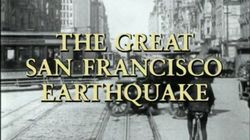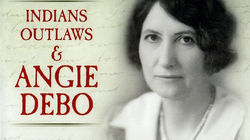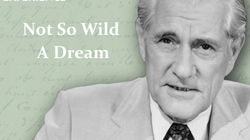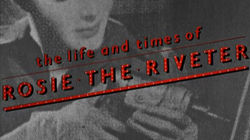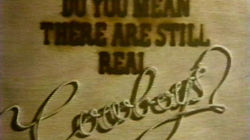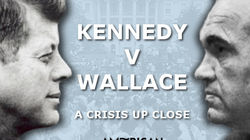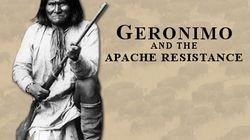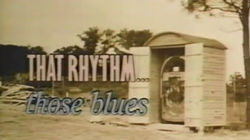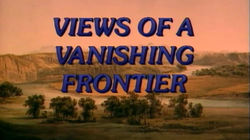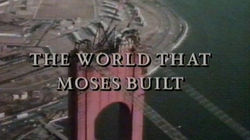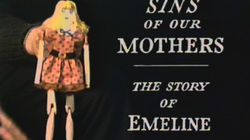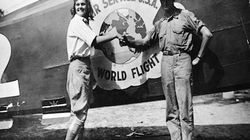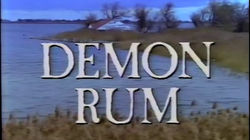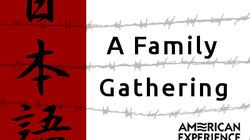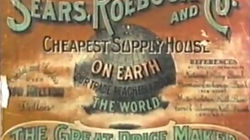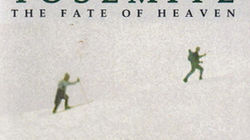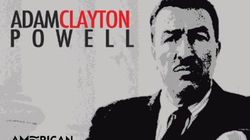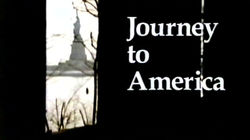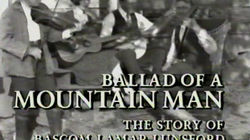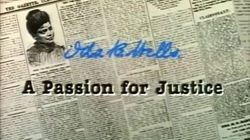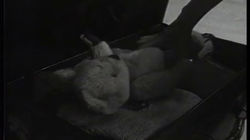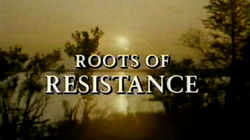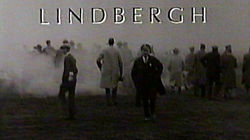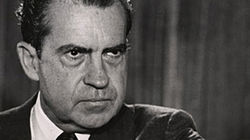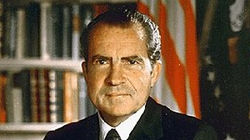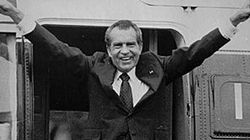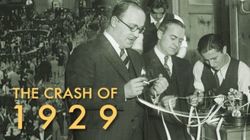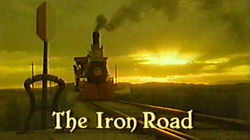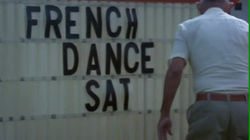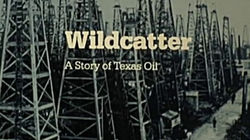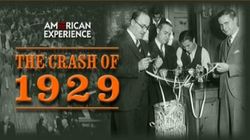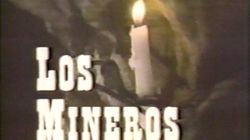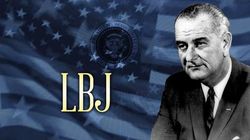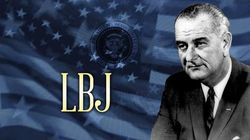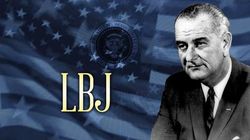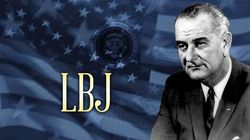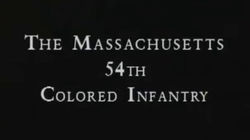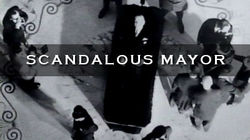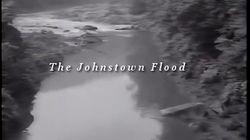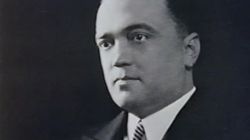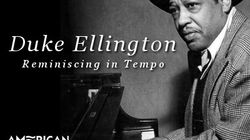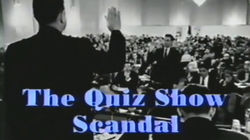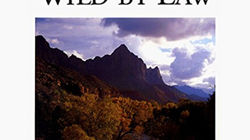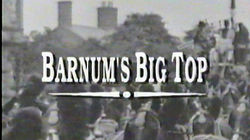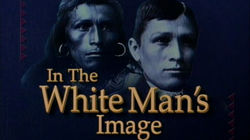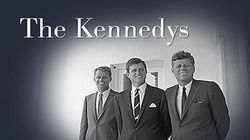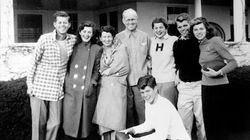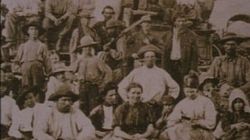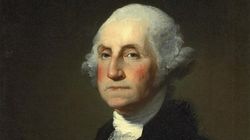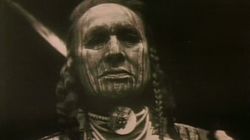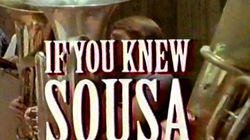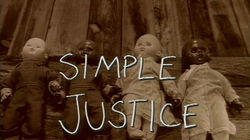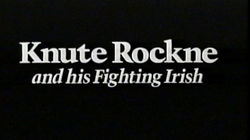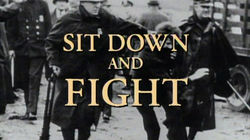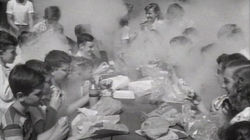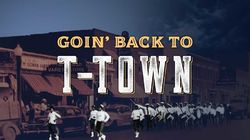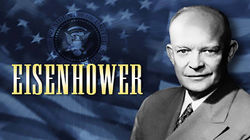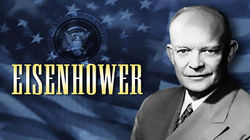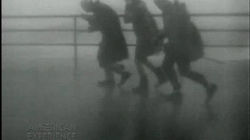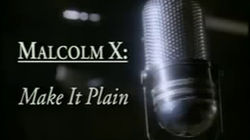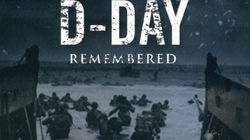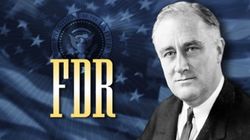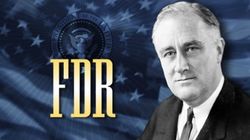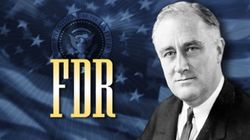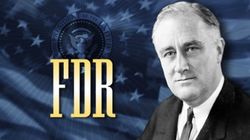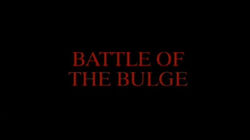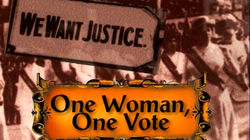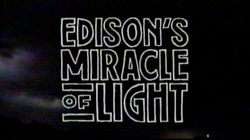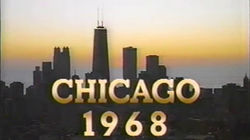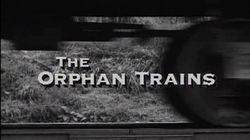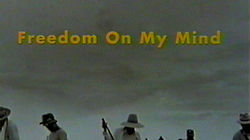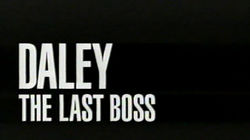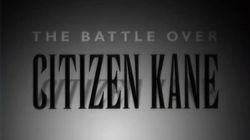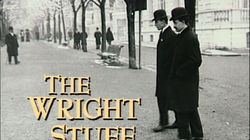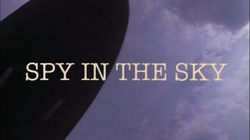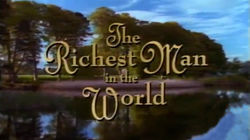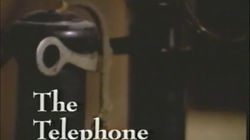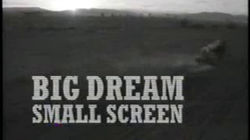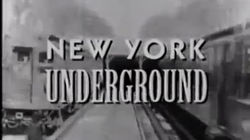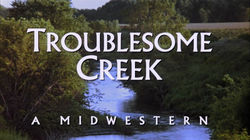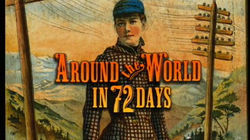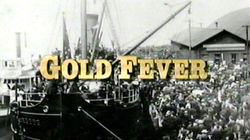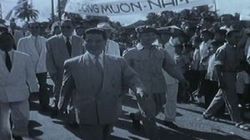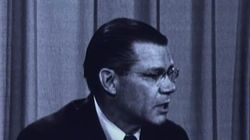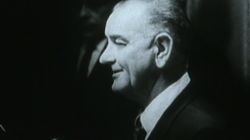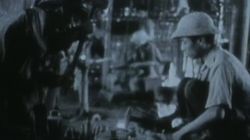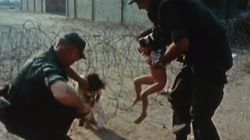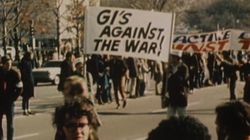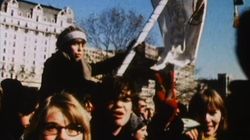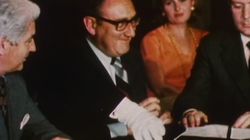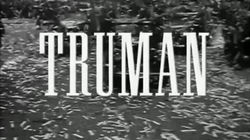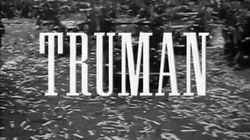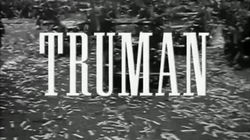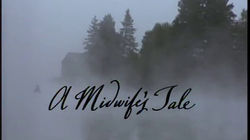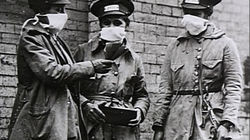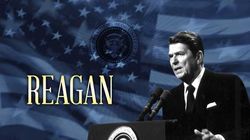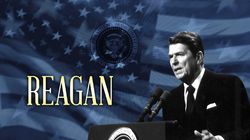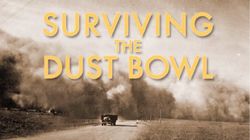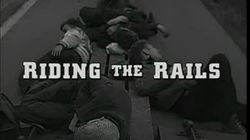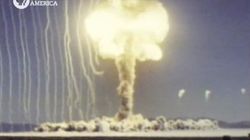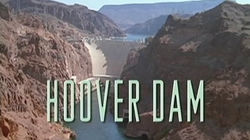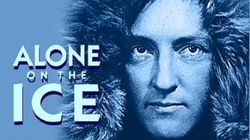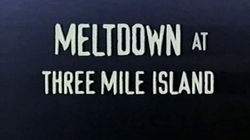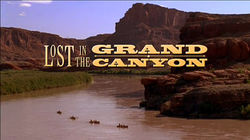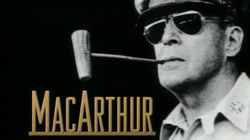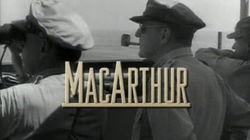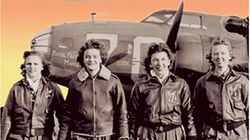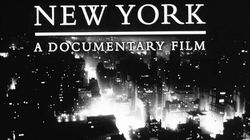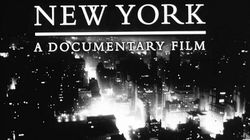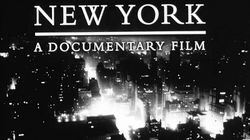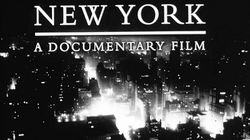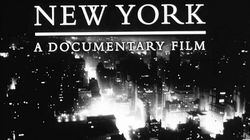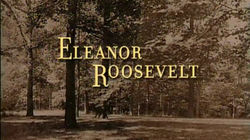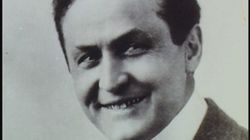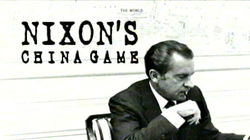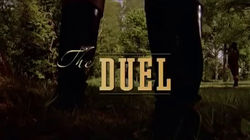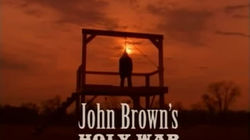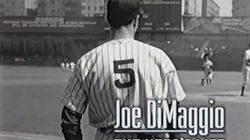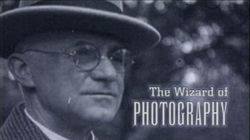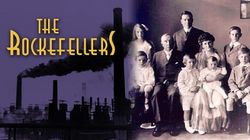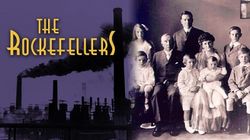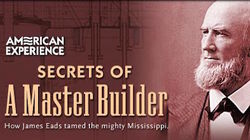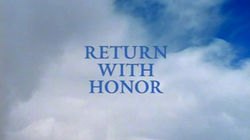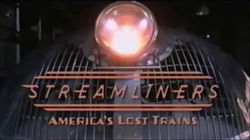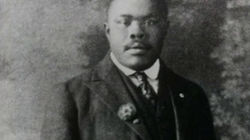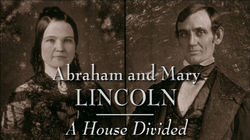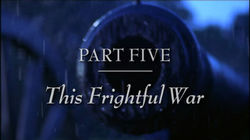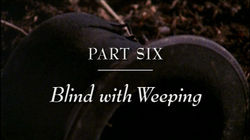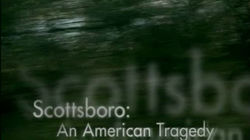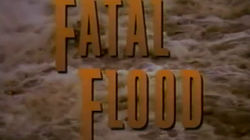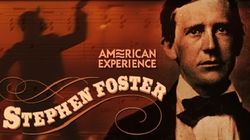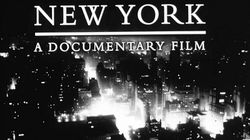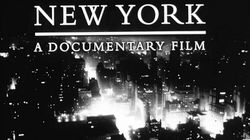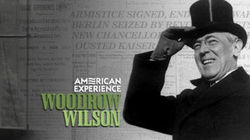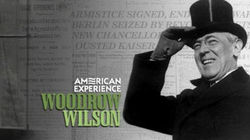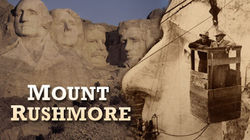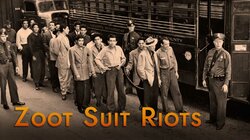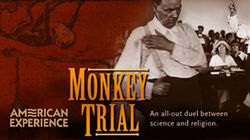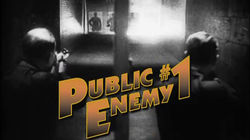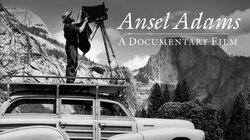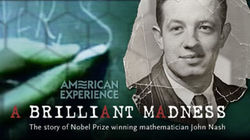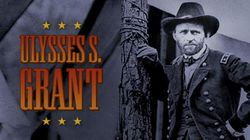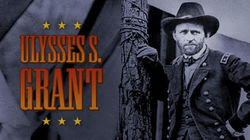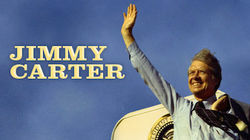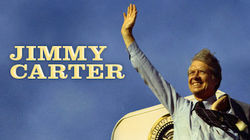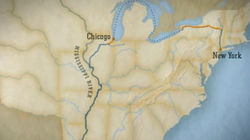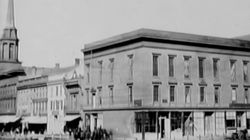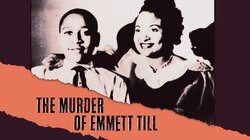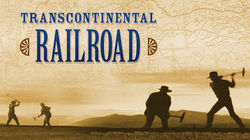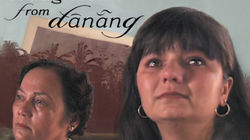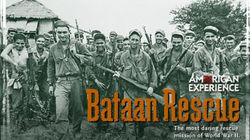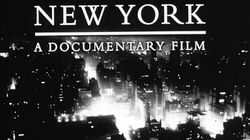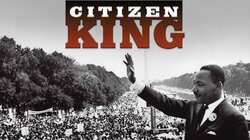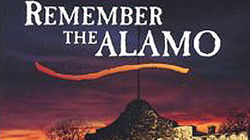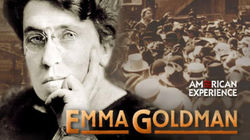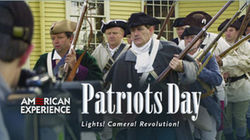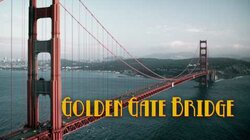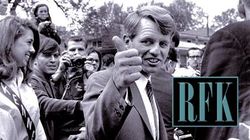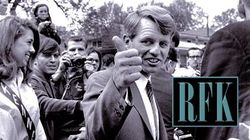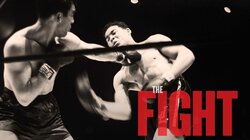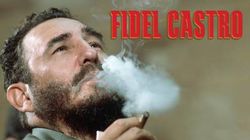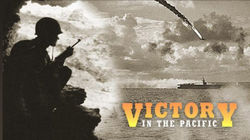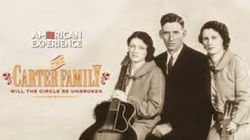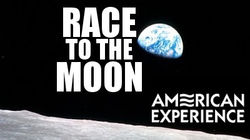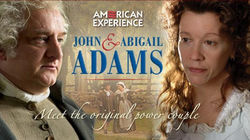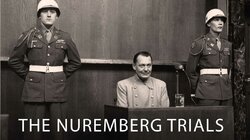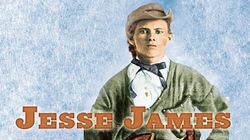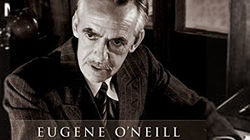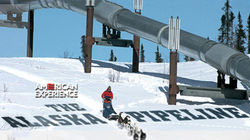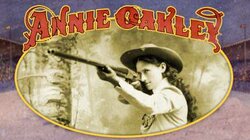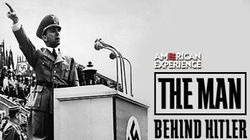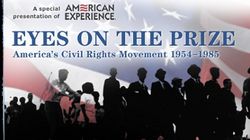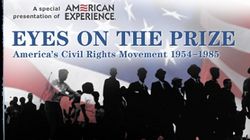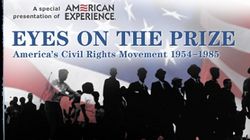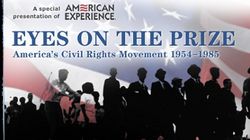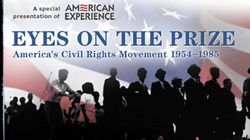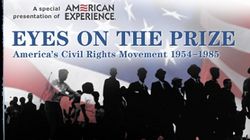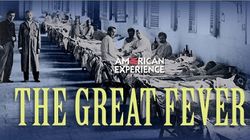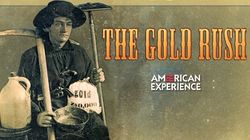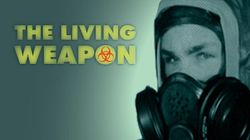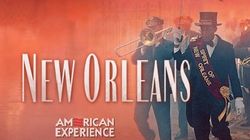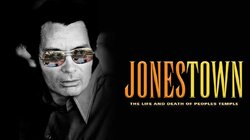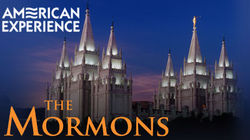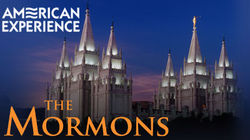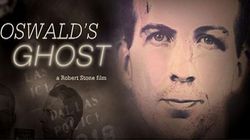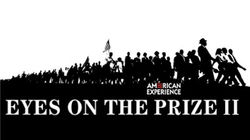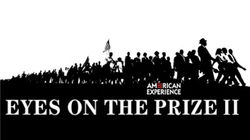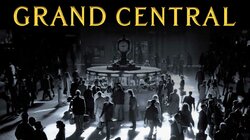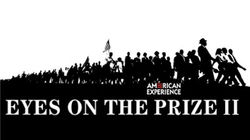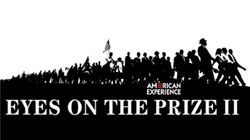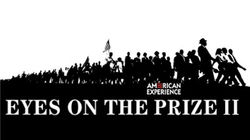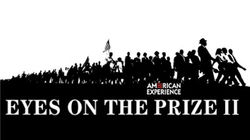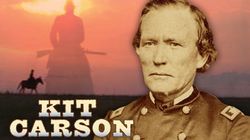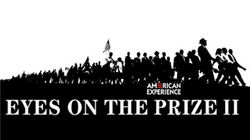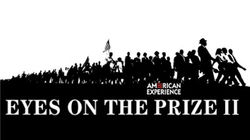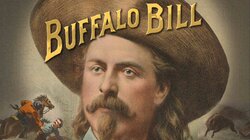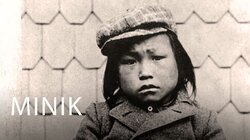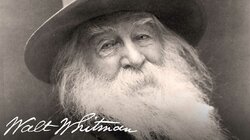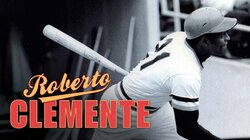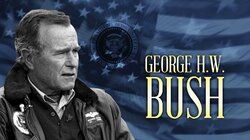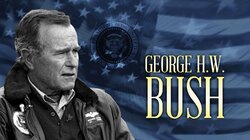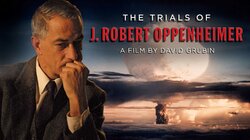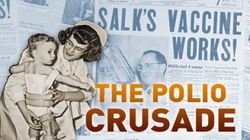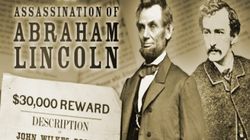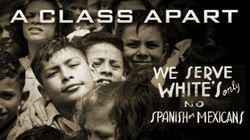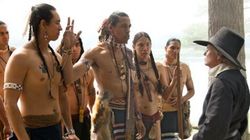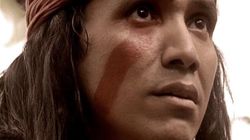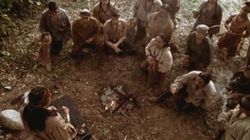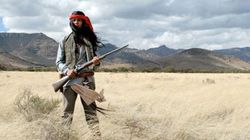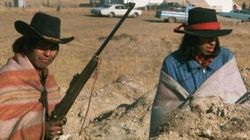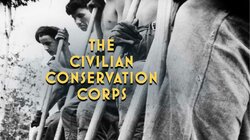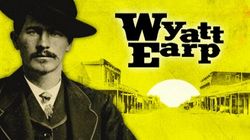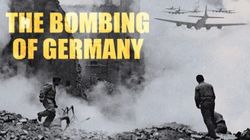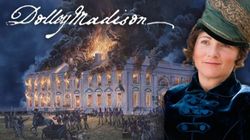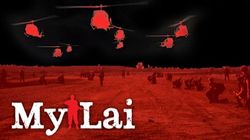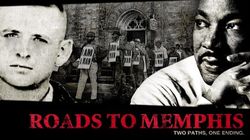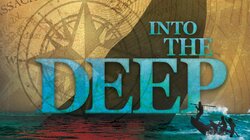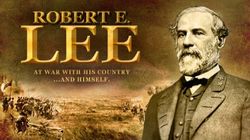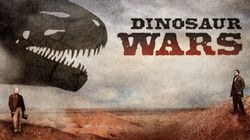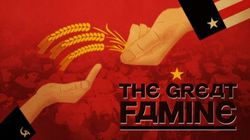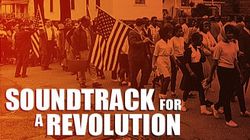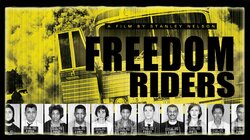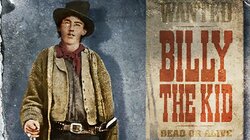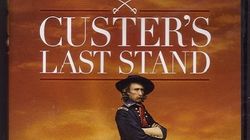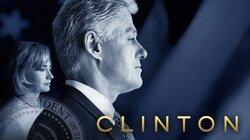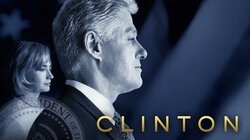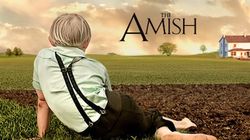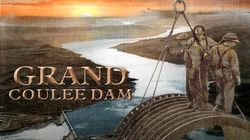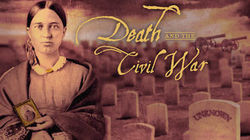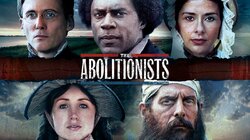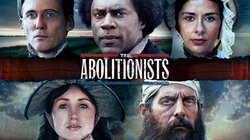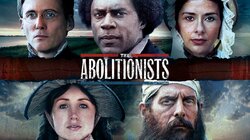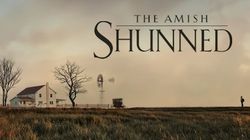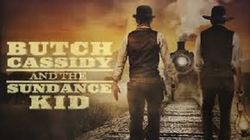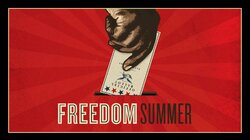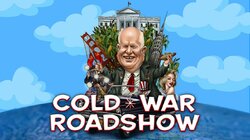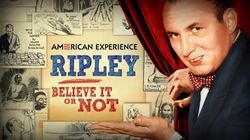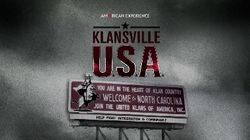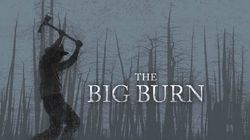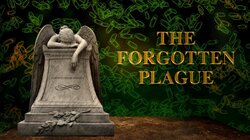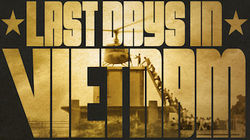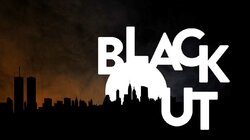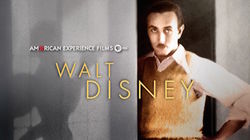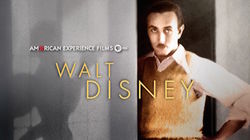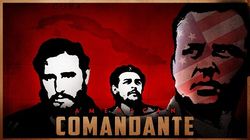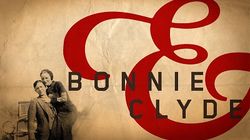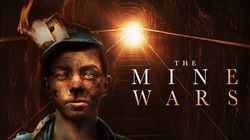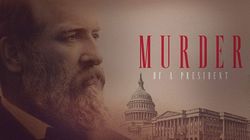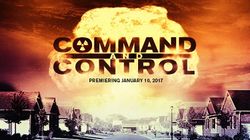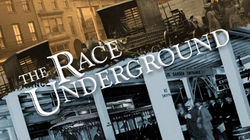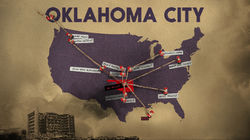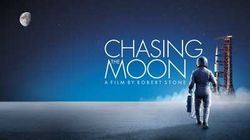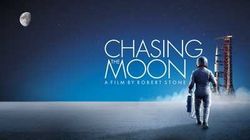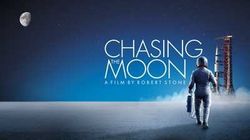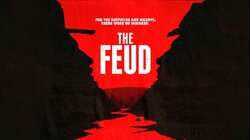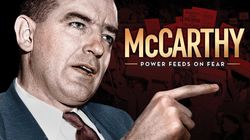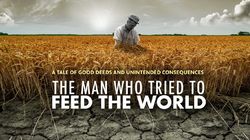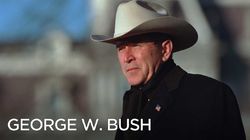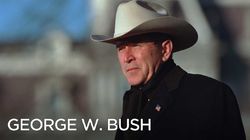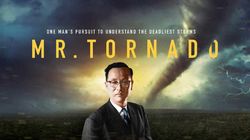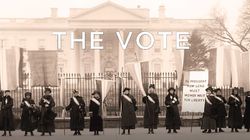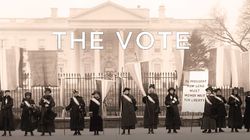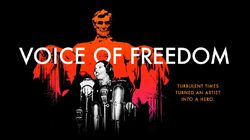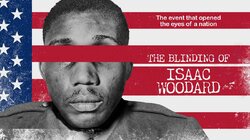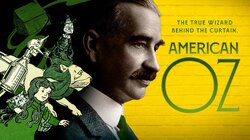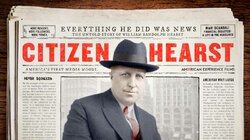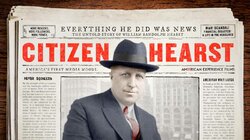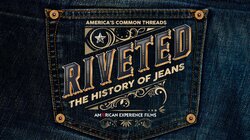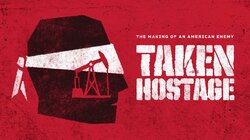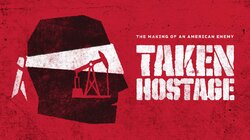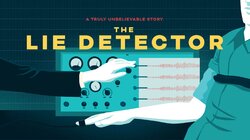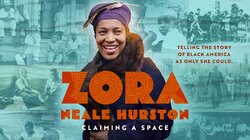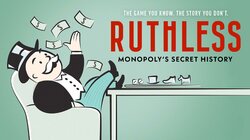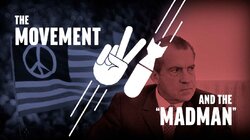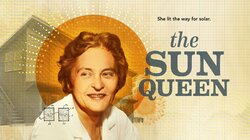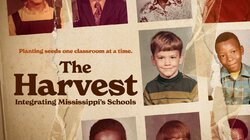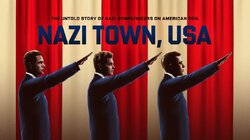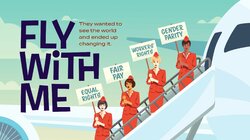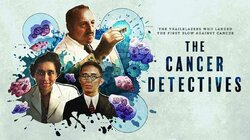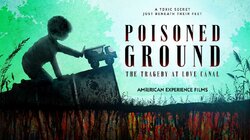Season 1
Episode: 1x01 | Airdate: Oct 4, 1988
From Enrico Caruso to the ordinary San Franciscan, this film presents vivid memories of those trapped in the terrifying event of 1906. Four hundred eighty square blocks were reduced to rubble; thousands were killed, tens of thousands left homeless. Then the heroic struggle to rebuild a city from the ashes began.
Episode: 1x02 | Airdate: Oct 11, 1988
The story of atomic bomb research after World War II and how above-ground testing led to the evacuation of a previously-populated atoll in the Pacific Ocean.
Episode: 1x03 | Airdate: Oct 18, 1988
The US government attempts to claim lands that have value from Native American dwellers.
Episode: 1x04 | Airdate: Oct 25, 1988
Mid 20th century America through the eyes of famous journalist Eric Sevareid.
Episode: 1x05 | Airdate: Nov 1, 1988
A treatment of women's contributions to the World War II defense industry including interviews with women who participated.
Episode: 1x06 | Airdate: Nov 8, 1988
A visit to working ranches in western Wyoming to examine the lifestyle of modern-day cowboys and compare it to the romantic historical notions.
Episode: 1x07 | Airdate: Nov 15, 1988
Episode: 1x08 | Airdate: Nov 22, 1988
Episode: 1x09 | Airdate: Nov 29, 1988
Episode: 1x10 | Airdate: Dec 6, 1988
Episode: 1x11 | Airdate: Dec 13, 1988
Episode: 1x12 | Airdate: Dec 20, 1988
Episode: 1x13 | Airdate: Dec 27, 1988
Episode: 1x14 | Airdate: Jan 3, 1989
A profile of the author and photographer Eudora Welty and her impressions of the South after the turn of the 20th century. She recalls her childhood and life in Jackson, Mississippi in a 1987 BBC film based on her 1984 autobiographical work.
Episode: 1x15 | Airdate: Jan 10, 1989
Episode: 1x16 | Airdate: Jan 17, 1989
Season 2
Episode: 2x01 | Airdate: Oct 3, 1989
Episode: 2x02 | Airdate: Oct 10, 1989
Episode: 2x03 | Airdate: Oct 17, 1989
Episode: 2x04 | Airdate: Oct 31, 1989
Episode: 2x05 | Airdate: Nov 7, 1989
Episode: 2x06 | Airdate: Nov 14, 1989
Episode: 2x07 | Airdate: Nov 21, 1989
Episode: 2x08 | Airdate: Nov 28, 1989
Episode: 2x09 | Airdate: Dec 5, 1989
Episode: 2x10 | Airdate: Dec 12, 1989
Episode: 2x11 | Airdate: Dec 19, 1989
Episode: 2x12 | Airdate: Dec 26, 1989
Episode: 2x13 | Airdate: Jan 2, 1990
Episode: 2x14 | Airdate: Jan 9, 1990
Episode: 2x15 | Airdate: Jan 16, 1990
Season 3
Episode: 3x01 | Airdate: Oct 1, 1990
Episode: 3x02 | Airdate: Oct 15, 1990
Episode: 3x03 | Airdate: Oct 15, 1990
Episode: 3x04 | Airdate: Oct 15, 1990
Episode: 3x05 | Airdate: Oct 22, 1990
Episode: 3x06 | Airdate: Oct 29, 1990
Episode: 3x07 | Airdate: Nov 5, 1990
Episode: 3x08 | Airdate: Nov 19, 1990
Episode: 3x09 | Airdate: Nov 26, 1990
Episode: 3x10 | Airdate: Dec 10, 1990
Episode: 3x11 | Airdate: Dec 17, 1990
Episode: 3x12 | Airdate: Jan 7, 1991
Episode: 3x13 | Airdate: Jan 28, 1991
Episode: 3x14 | Airdate: Feb 4, 1991
Season 4
Episode: 4x01 | Airdate: Sep 30, 1991
Episode: 4x02 | Airdate: Sep 30, 1991
Episode: 4x03 | Airdate: Oct 1, 1991
Episode: 4x04 | Airdate: Oct 1, 1991
Episode: 4x05 | Airdate: Oct 14, 1991
Episode: 4x06 | Airdate: Oct 28, 1991
Episode: 4x07 | Airdate: Nov 4, 1991
Episode: 4x08 | Airdate: Nov 11, 1991
Episode: 4x09 | Airdate: Nov 18, 1991
Episode: 4x10 | Airdate: Dec 9, 1991
Episode: 4x11 | Airdate: Jan 6, 1992
Episode: 4x12 | Airdate: Jan 13, 1992
Episode: 4x13 | Airdate: Jan 27, 1992
Episode: 4x14 | Airdate: Feb 10, 1992
Episode: 4x15 | Airdate: Feb 17, 1992
Season 5
Episode: 5x01 | Airdate: Sep 20, 1992
Episode: 5x02 | Airdate: Sep 21, 1992
Episode: 5x03 | Airdate: Oct 28, 1992
Episode: 5x04 | Airdate: Nov 11, 1992
Episode: 5x05 | Airdate: Nov 18, 1992
Episode: 5x06 | Airdate: Nov 25, 1992
Episode: 5x07 | Airdate: Dec 9, 1992
Episode: 5x08 | Airdate: Jan 18, 1993
Episode: 5x09 | Airdate: Jan 25, 1993
Episode: 5x10 | Airdate: Feb 1, 1993
Episode: 5x11 | Airdate: Feb 8, 1993
Episode: 5x12 | Airdate: Mar 1, 1993
This episode tells the story of Greenwood, an extraordinary Black community in Tulsa, Oklahoma, that prospered during the 1920s and 30s despite rampant and hostile segregation. Torn apart in 1921 by one of the worst racially-motivated massacres in the nation's history, the neighborhood rose from the ashes, and by 1936 boasted the largest concentration of Black-owned businesses in the U.S., known as "Black Wall Street." Ironically, it could not survive the progressive policies of integration and urban renewal of the 1960s. Told through the memories of those who lived through the events, the film is a bittersweet celebration of small-town life and the resilience of a community's spirit.
Season 6
Episode: 6x01 | Airdate: Oct 27, 1993
The first woman to fly solo across the Atlantic, Amelia Earhart was one of America's first celebrities. After only a few years as a pilot, she became the best-known female flier in America, not only for her daring and determination, but also for her striking looks and outspoken personality. Amelia even had an uncanny resemblance to Charles Lindbergh — the most famous man in America at the time — that publicists seized upon, nicknaming her "Lady Lindy." Three weeks short of her 40th birthday, Earhart disappeared over the Pacific Ocean, and her story became legend.
Amelia Earhart was raised to be a proper Victorian woman but decided early on that was a role that did not suit her. Amelia collected newspaper articles and pictures of successful women in male-dominated fields such as film, law, management, and engineering. Unsure of her own direction, Amelia moved between various schools and jobs. At 23, however, Amelia Earhart discovered her passion at an airfield when she paid $5 for her first ride in a biplane. "As soon as we left the ground," she later wrote, "I knew I myself had to fly. 'I think I'd like to fly,' I told the family casually that evening, knowing full well I'd die if I didn't."
To raise money for her own plane — a yellow Kinner Airster biplane she named The Canary — Amelia worked as a truck driver, photographer, and stenographer. In 1921, she passed her pilot's test from the National Aeronautic Association and received her license two years later from the Fédération Aéronautique Internationale, all while flying in races and setting an unofficial altitude record for female pilots.
In 1928, Earhart gained international fame after becoming the first female passenger to fly across the Atlantic on the Friendship with pilot Wilmer Stultz and co-pilot Louis Gordon. After writing a bestselling book about the experience, Amelia's celebrity exploded. With publicist George Palmer Putnam — who would become her husband — Amelia planned a nationwide book tour and endorsed dozens of products. Still, she did not feel deserving of all the acclaim. "I was just baggage, like a sack of potatoes," she claimed about her famous trip. Only in 1932, after Amelia Earhart flew across the Atlantic Ocean solo, did she feel she had earned her lavish praise.
Though she was only the second person in the world to accomplish this (after Lindbergh), Amelia Earhart did not slow down. Through the 1930s, she broke more flying records, wrote another book, promoted commercial airlines, and worked as a lecturer, career advisor to female college students, and Aviation Editor at Cosmopolitan Magazine.
In 1937, Amelia decided to go for the one record in aviation no one, man or woman, had ever attempted before — to fly around the world at the equator. A perilous and unprecedented flight, it required months of preparation and a lot of luck. In the end, Amelia had neither. Exhausted from a grueling schedule of promotions, speeches, and interviews, Amelia Earhart took off from Florida, making it all the way to New Guinea. After a few days rest, Amelia continued on, only to lose radio contact while trying to locate and land on the tiny Howland Island in the middle of the Pacific. On July 2, 1937, Amelia Earhart and her navigator Fred Noonan disappeared without a trace after nearly 22,000 miles into the around-the-world flight.
Amelia Earhart was adored because she was daring and successful in a man's world and because she was magnificently promoted in the press and newsreels of the time. In the end, her courage cost her her life, but her groundbreaking contributions to flight and women's struggle for equality made Amelia Earhart an enduring American hero.
Episode: 6x02 | Airdate: Nov 3, 1993
"Black Jack" Pershing pursues the famed outlaw into Mexico, with little success.
Episode: 6x03 | Airdate: Nov 10, 1993
He went off to war an unknown soldier and returned a beloved national hero. Often dismissed as a "do-nothing" president and a good-natured bumbler, Dwight D. Eisenhower — the last American president to be born in the 19th century — was a skillful politician, a tough Cold War warrior, and one of America's most misunderstood and unappreciated presidents.
Part 1 chronicles Eisenhower's childhood, education at West Point and military career, culminating in his service as Supreme Allied Commander in Europe.
Episode: 6x04 | Airdate: Nov 10, 1993
He went off to war an unknown soldier and returned a beloved national hero. Often dismissed as a "do-nothing" president and a good-natured bumbler, Dwight D. Eisenhower — the last American president to be born in the 19th century — was a skillful politician, a tough Cold War warrior, and one of America's most misunderstood and unappreciated presidents.
Part 2 follows Eisenhower's election to the presidency and two terms in the White House, as well as his retirement.
Episode: 6x05 | Airdate: Nov 17, 1993
Episode: 6x06 | Airdate: Jan 19, 1994
Episode: 6x07 | Airdate: Jan 26, 1994
Story of the controversial Malcolm X, his early years, his connection to the Nation of Islam, and his legacy.
Episode: 6x08 | Airdate: Apr 6, 1994
America's reaction to the plight of European Jews both immediately before and during World War II.
Episode: 6x09 | Airdate: May 25, 1994
Archival footage and the voices of people who participated provide a unique perspective on the World War II Allied invasion of Normandy.
Season 7
Episode: 7x01 | Airdate: Oct 11, 1994
Episode: 7x02 | Airdate: Oct 11, 1994
Episode: 7x03 | Airdate: Oct 12, 1994
Episode: 7x04 | Airdate: Oct 12, 1994
Episode: 7x05 | Airdate: Oct 19, 1994
Episode: 7x06 | Airdate: Oct 26, 1994
Episode: 7x07 | Airdate: Nov 9, 1994
Episode: 7x08 | Airdate: Feb 15, 1995
Episode: 7x09 | Airdate: Feb 22, 1995
The programs devised to help the American underclass in the 1960s and their successes and failures.
Episode: 7x10 | Airdate: May 8, 1995
Episode: 7x11 | Airdate: May 8, 1995
Episode: 7x12 | Airdate: May 9, 1995
Episode: 7x13 | Airdate: May 9, 1995
Season 8
Episode: 8x01 | Airdate: Oct 16, 1995
The nation is fascinated by the high-profile murder of a famous architect, apparently because of jealousy over a popular female stage performer.
Episode: 8x02 | Airdate: Oct 23, 1995
Inventor Thomas A. Edison experiments with electricity, long-burning filaments, and glass bulbs to give America an alternative to gas lights.
Episode: 8x03 | Airdate: Nov 13, 1995
Episode: 8x04 | Airdate: Nov 27, 1995
The story of orphaned inner-city children shipped to rural locations and new lives as part of a social engineering experiment.
Episode: 8x05 | Airdate: Jan 15, 1996
Episode: 8x06 | Airdate: Jan 22, 1996
Biography of Chicago mayor Richard Daley, considered one of the last major heads of big city "machine" politics in the United States.
Episode: 8x07 | Airdate: Jan 29, 1996
Orson Welles' movie stirs the ire of publisher William Randolph Hearst, the man who the film was patterned after.
Episode: 8x08 | Airdate: Feb 12, 1996
The story of Wilbur and Orville Wright and the earliest days of aviation.
Episode: 8x09 | Airdate: Feb 26, 1996
The Cold War forces the United States to build very high altitude U2 planes to record photographs of opposing nations.
Season 9
Episode: 9x01 | Airdate: Oct 6, 1996
Episode: 9x02 | Airdate: Oct 6, 1996
Episode: 9x03 | Airdate: Oct 7, 1996
Episode: 9x04 | Airdate: Oct 7, 1996
Episode: 9x05 | Airdate: Jan 20, 1997
Episode: 9x06 | Airdate: Jan 27, 1997
Episode: 9x07 | Airdate: Feb 3, 1997
Episode: 9x08 | Airdate: Feb 10, 1997
Episode: 9x09 | Airdate: Feb 17, 1997
Episode: 9x10 | Airdate: Apr 14, 1997
Episode: 9x11 | Airdate: Apr 28, 1997
Episode: 9x12 | Airdate: May 12, 1997
Episode: 9x13 | Airdate: May 26, 1997
Episode: 9x14 | Airdate: May 26, 1997
Episode: 9x15 | Airdate: Jun 2, 1997
Episode: 9x16 | Airdate: Jun 9, 1997
Episode: 9x17 | Airdate: Jun 16, 1997
Episode: 9x18 | Airdate: Jun 23, 1997
Episode: 9x19 | Airdate: Jun 30, 1997
Episode: 9x20 | Airdate: Jul 7, 1997
Episode: 9x21 | Airdate: Jul 14, 1997
Episode: 9x22 | Airdate: Jul 21, 1997
Episode: 9x23 | Airdate: Jul 28, 1997
Season 10
Episode: 10x01 | Airdate: Oct 5, 1997
Episode: 10x02 | Airdate: Oct 6, 1997
Episode: 10x03 | Airdate: Oct 7, 1997
Episode: 10x04 | Airdate: Jan 19, 1998
Episode: 10x05 | Airdate: Feb 2, 1998
Episode: 10x06 | Airdate: Feb 9, 1998
In September of 1918, soldiers at an army base near Boston suddenly began to die. The cause of death was identified as influenza, but it was unlike any strain ever seen. As the killer virus spread across the country, hospitals overfilled, death carts roamed the streets and helpless city officials dug mass graves. It was the worst epidemic in American history, killing over 600,000 — until it disappeared as mysteriously as it had begun.
Episode: 10x07 | Airdate: Feb 23, 1998 (120 min)
Episode: 10x08 | Airdate: Feb 24, 1998 (120 min)
Episode: 10x09 | Airdate: Mar 2, 1998
In 1931 the rains stopped and the "black blizzards" began. Powerful dust storms carrying millions of tons of stinging, blinding black dirt swept across the Southern Plains — the panhandles of Texas and Oklahoma, western Kansas, and the eastern portions of Colorado and New Mexico. Topsoil that had taken a thousand years per inch to build suddenly blew away in only minutes. One journalist traveling through the devastated region dubbed it the "Dust Bowl."
This episode is the remarkable story of the determined people who clung to their homes and way of life, enduring drought, dust, disease — even death — for nearly a decade. Less well-known than those who sought refuge in California, typified by the Joad family in John Steinbeck's The Grapes of Wrath, the Dust Bowlers who stayed overcame an almost unbelievable series of calamities and disasters.
Episode: 10x10 | Airdate: Apr 13, 1998
Season 11
Episode: 11x01 | Airdate: Nov 18, 1998
Episode: 11x02 | Airdate: Nov 18, 1998
Episode: 11x03 | Airdate: Nov 18, 1998
Episode: 11x04 | Airdate: Nov 18, 1998
Episode: 11x05 | Airdate: Jan 11, 1999
Episode: 11x06 | Airdate: Jan 18, 1999
Episode: 11x07 | Airdate: Feb 8, 1999
Episode: 11x08 | Airdate: Feb 15, 1999
Episode: 11x09 | Airdate: Feb 22, 1999
Episode: 11x10 | Airdate: Apr 5, 1999
Episode: 11x11 | Airdate: May 17, 1999
Episode: 11x12 | Airdate: May 18, 1999
Episode: 11x13 | Airdate: May 24, 1999
Season 12
Episode: 12x01 | Airdate: Nov 14, 1999
Episode: 12x02 | Airdate: Nov 15, 1999
Episode: 12x03 | Airdate: Nov 16, 1999
Episode: 12x04 | Airdate: Nov 17, 1999
Episode: 12x05 | Airdate: Nov 18, 1999
Episode: 12x06 | Airdate: Jan 10, 2000
Episode: 12x07 | Airdate: Jan 24, 2000
Episode: 12x08 | Airdate: Jan 31, 2000
Episode: 12x09 | Airdate: Feb 14, 2000
Episode: 12x10 | Airdate: Feb 28, 2000
Episode: 12x11 | Airdate: Apr 23, 2000
Episode: 12x12 | Airdate: Apr 24, 2000
Episode: 12x13 | Airdate: May 1, 2000
On November 16, 1871, a group of unknown singers — all but two of them former slaves and many of them still in their teens -- arrived at Oberlin College in Ohio to perform before a national convention of influential ministers. After a few standard ballads, the chorus began to sing spirituals -- "Steal Away" and other songs" associated with slavery and the dark past, sacred to our parents," as soprano Ella Sheppard recalled. It was one of the first public performances of the secret music African Americans had sung in fields and behind closed doors.
"Jubilee Singers: Sacrifice and Glory," produced by Llewellyn Smith, tells the story of a group of former slaves who battled prejudice and oppression to sing their way into a nation's heart. Eventually, they would perform for presidents and queens, tour the United States and Europe, and establish songs like "Swing Low, Sweet Chariot" and "This Little Light of Mine" as a cherished part of the nation's musical heritage. The program features today's Fisk Jubilee Singers performing these and many other spirituals; Dion Graham narrates.
The concert in Oberlin was the turning point in a daring fundraising experiment for impoverished Fisk University in Nashville, Tennessee, where the singers were students. Established in January 1866, Fisk taught freed slaves how to count their wages, how to write the new names they had chosen for themselves, and read both the ballot and the Bible. Despite emancipation, the South was a dangerous place: Fisk students who dared teach in the countryside were routinely assaulted and whipped by Ku Klux Klan nightriders; one was shot at in his classroom; another had her school building burned to the ground.
Charged with keeping the financially troubled school afloat, treasurer George Leonard White proposed taking Fisk's most gifted singers on a fundraising tour of the North. Before they even left town, they encountered resistance: the parents were afraid to let their children go; White's fellow teachers opposed the tour; and the American Missionary Association, the northern religious organization that operated Fisk, refused to help, worried that the chorus's appeal for funds would jeopardize their own fundraising activities. But White persevered.
Following the path of the Underground Railway, the group made its debut in Cincinnati. Despite the warm reception, donations totaled less than $50. Night after night, it was the same: crowds loved their singing, but the collection plate yielded barely enough to cover their expenses. Yet, no one turned back.
Life on the road took its toll. White and the singers endured rheumatism, bronchitis, chronic coughs. Their clothes ran to rags. But after the triumphant Oberlin performance, word started to spread. In December, the Jubilee Singers appeared at Henry Ward Beecher's weekly prayer meeting at Brooklyn's Plymouth Church. "Every church wanted the Jubilee Singers from that time on," wrote Maggie Porter. They sang for Mark Twain, President Ulysses S. Grant, congressmen, diplomats.
After less than two weeks' rest, the singers were back on the road, touring the Eastern United States. Eventually, they would tour Europe to universal acclaim and sing for the royal families of Holland, Germany, and Britain.
The group raised what today would be millions of dollars, but they paid a terrible price. Worn down by the relentless schedule, an advance man suffered a nervous breakdown. George White lost his wife to typhoid fever. White himself nearly died of a pulmonary hemorrhage. Contralto Minnie Tate's voice was torn to shreds. Tenor Benjamin Holmes's nagging cough was caused by tuberculosis. They faced discrimination on the road and from the press. A grueling tour of Germany -- ninety-eight days, forty-one towns, sixty-eight concerts -- brought with it low morale, frayed nerves, and rivalries among the singers.
After almost seven years of touring, the Jubilee Singers returned home. Fisk honored them for raising the funds to complete Jubilee Hall and save their school.
But their contributions extended far beyond Fisk University. They had introduced the world to the power of spirituals and challenged racial stereotypes on two continents. "In their wake, hotels, railways, steamship lines, and boards of education integrated their facilities. The Jubilees not only introduced the world to the music of black America, they championed the liberties of all Americans," says Andrew Ward, co-writer of the documentary and author of "Dark Midnight When I Rise: The Story of the Jubilee Singers." More than 125 years later, the Jubilee Singers of Fisk University continue the concert tradition begun by that courageous, original chorus of former slaves.
Episode: 12x14 | Airdate: May 8, 2000
Episode: 12x15 | Airdate: May 22, 2000
Season 13
Episode: 13x01 | Airdate: Oct 16, 2000
Episode: 13x02 | Airdate: Oct 23, 2000
Episode: 13x03 | Airdate: Oct 30, 2000
Episode: 13x04 | Airdate: Nov 13, 2000
Episode: 13x05 | Airdate: Feb 5, 2001
Episode: 13x06 | Airdate: Feb 12, 2001
Episode: 13x07 | Airdate: Feb 19, 2001
Episode: 13x08 | Airdate: Feb 19, 2001
Episode: 13x09 | Airdate: Feb 20, 2001
Episode: 13x10 | Airdate: Feb 20, 2001
Episode: 13x11 | Airdate: Feb 21, 2001
Episode: 13x12 | Airdate: Feb 21, 2001
Episode: 13x13 | Airdate: Apr 2, 2001
Episode: 13x14 | Airdate: Apr 16, 2001
In the spring of 1927, after weeks of incessant rains, the Mississippi River went on a rampage from Cairo, Illinois, to New Orleans, inundating hundreds of towns, killing as many as a thousand people, and leaving a million homeless. In Greenville, Mississippi, efforts to contain the river pitted the majority black population against an aristocratic plantation family, the Percys, and the Percys against themselves. A dramatic story of greed, power, and race during one of America's greatest natural disasters.
Episode: 13x15 | Airdate: Apr 23, 2001
Season 14
Episode: 14x01 | Airdate: Sep 30, 2001
Episode: 14x02 | Airdate: Oct 1, 2001
Episode: 14x03 | Airdate: Nov 11, 2001
Episode: 14x04 | Airdate: Jan 6, 2002
Episode: 14x05 | Airdate: Jan 13, 2002
Episode: 14x06 | Airdate: Jan 20, 2002
Episode: 14x07 | Airdate: Jan 27, 2002
Episode: 14x08 | Airdate: Feb 10, 2002
In June 1943, Los Angeles erupted into the worst race riots in the city to date. For ten straight nights, American sailors armed with make-shift weapons cruised Mexican American neighborhoods in search of "zoot-suiters" — hip, young Mexican teens dressed in baggy pants and long-tailed coats. The military men dragged kids — some as young as twelve years old — out of movie theaters, diners bars, and cafes, tearing the clothes off the young men's bodies and viciously beating them. Mexican youths aggressively struck back. The fighting intensified, and on the worst night, taxi drivers offered free rides to the riot area. One LA paper even printed a guide on how to "de-zoot" a zoot-suiter. When the violence ended, scores of Mexicans and servicemen were in hospital beds.
Zoot Suit Riots is a powerful film that explores the complicated racial tensions and the changing social and political landscape that led up to the explosion on LA's streets in the summer of 1943. To understand what happened during those terrifying June nights, the film describes changes in the city's population — the influx of new immigrants, the booming war-time economy, the massive number of servicemen on their way to the Pacific theater, and a new generation of Mexican Americans who were more conspicuous, more affluent and more self-confident than their parents had ever dared to be.
Decked out in wide-brim hats, baggy pants, high boots, and long-tailed coats, these "zoot-suiters" called each other "mad cats." They were "Terrific as the Pacific" and "Frantic as the Atlantic." Crossing cultural lines and pushing the boundaries of race and class, they were trying to define for themselves what it meant to be an American in 1942 Los Angeles. Even though there was no evidence to connect "zoot-suiters" to crime, the kids' posturing and self-assurance made Anglos nervous. Many Mexican American parents even agreed that something was wrong with their young people.
At the heart of this story lies an unsolved murder. On August 1, 1942, a 22-year-old Mexican American man was stabbed to death at a party. To white Los Angelenos, the murder was more proof that Mexican American crime was spiraling out of control. The police fanned out across LA, netting 600 young Mexican American suspects. Almost all those taken into custody wore their generation's distinctive uniform: zoot suits. The tragic murder and the injustice of the trial that followed, coupled with sensational news coverage of both, fanned the flames of the racial hostility already rife in the city. Within months of the verdict, Los Angeles was in the grip of the worst violence in its history.
With stunning film noir-style recreations of Los Angeles in the 1940s and with eloquent first-hand accounts from key participants — sailors and the white citizens who supported them, zoot-suiters and their families — the program deftly conjures up the flamboyant world of a Mexican American subculture, the bigotry and hatred of much of the white establishment, and the dedication of a few liberals who pressed for justice in the face of overwhelming opposition.
In exploring the incredible outpouring of hatred and resentment iwartimewartimeme Los Angeles, this film teaches us about race relations in the United States today.
Episode: 14x09 | Airdate: Feb 17, 2002
Episode: 14x10 | Airdate: Feb 24, 2002
Episode: 14x11 | Airdate: Apr 21, 2002
From the day that 14-year-old Ansel Adams first saw the transcendent beauty of Yosemite Valley, his life was, in his words, "colored and modulated by the great earth-gesture of the Sierra." Few American photographers have reached a wider audience than Adams, and none has had more impact on how Americans grasp the majesty of their continent.
American Experience presents Ansel Adams: A Documentary Film, written and directed by Ric Burns and co-produced by Sierra Club Productions and Steeplechase Films. For the centennial of the artist's birth, Burns has created an elegant, moving, and lyrical portrait of this quintessentially American photographer. The documentary weaves together archival footage, photographic images, dramatic readings of the artist's own writing, and interviews with leading photographers, historians, curators, naturalists, as well as Adams's family, friends, and colleagues, to tell the story of a man who was at once a visionary photographer, a pioneer in photographic technique, and an ardent crusader for the cause of environmentalism.
Episode: 14x12 | Airdate: Apr 28, 2002
Episode: 14x13 | Airdate: May 5, 2002
Episode: 14x14 | Airdate: May 12, 2002
Season 15
Episode: 15x01 | Airdate: Nov 11, 2002
Episode: 15x02 | Airdate: Nov 12, 2002
Episode: 15x03 | Airdate: Jan 13, 2003
Episode: 15x04 | Airdate: Jan 14, 2003
Episode: 15x05 | Airdate: Jan 15, 2003
Episode: 15x06 | Airdate: Jan 20, 2003
In August 1955, a 14-year-old black boy whistled at a white woman in a grocery store in Money, Mississippi. Emmett Till, a teen from Chicago, didn't understand that he had broken the unwritten laws of the Jim Crow South until three days later, when two white men dragged him from his bed in the dead of night, beat him brutally, and then shot him in the head. Although his killers were arrested and charged with murder, they were both acquitted quickly by an all-white, all-male jury. Shortly afterward, the defendants sold their story, including a detailed account of how they murdered Till, to a journalist. The murder and the trial horrified the nation and the world. Till's death was a spark that helped mobilize the Civil Rights movement. Three months after his body was pulled from the Tallahatchie River, the Montgomery bus boycott began.
Episode: 15x07 | Airdate: Jan 27, 2003
Episode: 15x08 | Airdate: Feb 10, 2003
Episode: 15x09 | Airdate: Feb 24, 2003
Episode: 15x10 | Airdate: Apr 7, 2003
Episode: 15x11 | Airdate: Apr 21, 2003
Episode: 15x12 | Airdate: Jul 7, 2003
Episode: 15x13 | Airdate: Jul 14, 2003
Season 16
Episode: 16x01 | Airdate: Sep 8, 2003
Episode: 16x02 | Airdate: Jan 12, 2004
Episode: 16x03 | Airdate: Jan 13, 2004
Episode: 16x04 | Airdate: Jan 19, 2004
On a steamy afternoon in August 1963, a thirty-four-year-old minister gave a speech that enthralled a crowd of more than two hundred thousand people gathered at Washington's Lincoln Memorial and millions more across the country who watched on television. With passion and precision, he proclaimed his vision of a nation free of racism, declaring, "Now is the time to make justice a reality for all of God's children."
What came to be known as the "I Have A Dream" speech was a high point in the public career of Martin Luther King, Jr. But it was also a turning point in his personal life, as he embarked on a controversial, often lonely struggle to redefine and redirect the movement he had helped lead. The quest would not end until his untimely death five years later.
Episode: 16x05 | Airdate: Feb 2, 2004
Episode: 16x06 | Airdate: Feb 9, 2004
Episode: 16x07 | Airdate: Apr 12, 2004
For nearly half a century, Russian emigrant Emma Goldman was the most controversial woman in America, taunting the mainstream with her fervent attacks on government, big business, and war. To the tabloids, she was "Red Emma, queen of the anarchists," but many admired Goldman for her defense of labor rights, women's emancipation, birth control, and free speech.
Episode: 16x08 | Airdate: Apr 19, 2004
Episode: 16x09 | Airdate: May 3, 2004
Season 17
Episode: 17x01 | Airdate: Oct 4, 2004
Episode: 17x02 | Airdate: Oct 4, 2004
Episode: 17x03 | Airdate: Oct 18, 2004
June 22, 1938. Though the Great Depression rages and war looms, the eyes of the world are on Yankee Stadium in New York where, beneath threatening skies, German Max Schmeling and American Joe Louis are squaring off for the heavyweight championship of the world. More than 90,000 people crowd the stadium to watch the encounter, and countless millions more — the largest radio audience in history — listen in around the world to what one commentator would call "two minutes and four seconds of murder."
The pressure on each fighter is enormous. Joe Louis is not only fighting for the honor of the country; he is quite literally holding the hopes of all of black America in his fists. For Max Schmeling, the fight will be a demonstration of Hitler's racial theories, and should the German lose, many fear for what could happen to him. Theirs was a rivalry that would draw in two nations inching closer to war and take the measure of two men who had been fighting all their lives.
The Fight explores the famous 1938 heavyweight bout and finds two men who, in the shadow of war, became reluctant symbols of equality and supremacy, democracy and fascism.
Episode: 17x04 | Airdate: Jan 31, 2005
Episode: 17x05 | Airdate: Feb 7, 2005
Episode: 17x06 | Airdate: Feb 14, 2005
Episode: 17x07 | Airdate: Apr 4, 2005
Episode: 17x08 | Airdate: Apr 11, 2005
Episode: 17x09 | Airdate: Apr 18, 2005
Was it an act of honor or revenge for a crime never committed? In the waning days of summer 1931, Honolulu's tropical tranquility was shattered when a young Navy wife made a drastic allegation of rape against five nonwhite islanders. What unfolded in the following days and weeks was a racially-charged murder case that would make headlines across the nation, enrage Hawai'i's native population, and galvanize the island's law enforcers and the nation's social elite. Retitled as "The Island Murder," it aired again on April 17, 2018.
On April 17, 2018, American Experience aired "The Massie Affair" again as "The Island Murder."
Episode: 17x10 | Airdate: Apr 25, 2005
Episode: 17x11 | Airdate: May 2, 2005
Episode: 17x12 | Airdate: May 9, 2005
Episode: 17x13 | Airdate: May 23, 2005
Season 18
Episode: 18x01 | Airdate: Oct 17, 2005
In October 1967, history turned a corner. In a jungle in Vietnam, a Viet Cong ambush nearly wiped out an American battalion, prompting some in power to question whether the war might be unwinnable. On a campus in Wisconsin, a student protest against the war spiraled out of control, marking the first time that a campus anti-war demonstration had turned violent.
Episode: 18x02 | Airdate: Oct 31, 2005
Episode: 18x03 | Airdate: Nov 14, 2005
Episode: 18x04 | Airdate: Nov 15, 2005
Episode: 18x05 | Airdate: Jan 23, 2006
Episode: 18x06 | Airdate: Jan 30, 2006
Episode: 18x07 | Airdate: Feb 6, 2006
Episode: 18x08 | Airdate: Feb 27, 2006
Episode: 18x09 | Airdate: Mar 27, 2006
Episode: 18x10 | Airdate: Apr 10, 2006
Episode: 18x11 | Airdate: Apr 24, 2006
Episode: 18x12 | Airdate: May 8, 2006
She was the toast of Victorian London, New York, and Paris. She was "adopted" by Indian chief Sitting Bull, charmed the Prince of Prussia, and entertained the likes of Oscar Wilde and Queen Victoria. Annie Oakley excelled in a man's world by doing what she loved and won fame and fortune as the little lady from Ohio who never missed a shot.
Episode: 18x13 | Airdate: May 22, 2006
Season 19
Episode: 19x01 | Airdate: Oct 2, 2006
Episode: 19x02 | Airdate: Oct 2, 2006
Episode: 19x03 | Airdate: Oct 9, 2006
Episode: 19x04 | Airdate: Oct 9, 2006
Episode: 19x05 | Airdate: Oct 16, 2006
Episode: 19x06 | Airdate: Oct 16, 2006
Episode: 19x07 | Airdate: Oct 23, 2006
Test Tube Babies tells the story of doctors, researchers, and hopeful couples who pushed the limits of science and triggered a technological revolution in human reproduction. In so doing, they landed at the center of a controversy whose reverberations continue to this day.
Episode: 19x08 | Airdate: Oct 30, 2006
Episode: 19x09 | Airdate: Nov 6, 2006
Episode: 19x10 | Airdate: Jan 29, 2007
Episode: 19x11 | Airdate: Feb 5, 2007
Episode: 19x12 | Airdate: Feb 12, 2007 (120 min)
Episode: 19x13 | Airdate: Apr 2, 2007
Episode: 19x14 | Airdate: Apr 9, 2007
Episode: 19x15 | Airdate: Apr 23, 2007
Summer of Love is a striking picture of San Francisco's Haight-Ashbury district during the summer of 1967 — from the utopian beginnings, when peace and love prevailed, to the chaos, unsanitary conditions, and widespread drug use that ultimately signaled the end.
In January 1967, the thousands of youth already in San Francisco descended on Golden Gate Park for a Human Be-In. The media flocked to the event, putting hippies in the national spotlight for the first time. And once the press offered a window into the world of Haight-Ashbury, even more young people flooded in. "The city of San Francisco has been warned of a hippie invasion come summer in numbers almost too staggering to comprehend," declared one TV news reporter.
The Summer of Love was a fleeting moment in the turbulent history of the 1960s. But its underlying message left an indelible impression on those who witnessed it.
Episode: 19x16 | Airdate: Apr 30, 2007
Episode: 19x17 | Airdate: May 1, 2007
Episode: 19x18 | Airdate: May 14, 2007
Season 20
Episode: 20x01 | Airdate: Jan 14, 2008
Episode: 20x02 | Airdate: Jan 21, 2008
Episode: 20x03 | Airdate: Feb 3, 2008
Episode: 20x04 | Airdate: Feb 3, 2008
Episode: 20x05 | Airdate: Feb 4, 2008
Episode: 20x06 | Airdate: Feb 10, 2008
Episode: 20x07 | Airdate: Feb 10, 2008
Episode: 20x08 | Airdate: Feb 17, 2008
Episode: 20x09 | Airdate: Feb 17, 2008
Episode: 20x10 | Airdate: Feb 18, 2008
Episode: 20x11 | Airdate: Feb 24, 2008
Episode: 20x12 | Airdate: Feb 24, 2008
Episode: 20x13 | Airdate: Feb 25, 2008
Episode: 20x14 | Airdate: Mar 31, 2008
Episode: 20x15 | Airdate: Apr 14, 2008
Episode: 20x16 | Airdate: Apr 21, 2008
On December 31, 1972, Roberto Clemente, a thirty-eight-year-old baseball player for the Pittsburgh Pirates, boarded a DC-7 aircraft loaded with relief supplies for survivors of a catastrophic earthquake in Managua, Nicaragua. Concerned over reports that the Nicaraguan dictatorship was misusing aid shipments, Clemente, a native of nearby Puerto Rico, hoped his involvement would persuade the government to distribute relief packages to the more than 300,000 people affected by the disaster. Shortly after takeoff, the overloaded aircraft plunged into the Atlantic Ocean, just one mile from the Puerto Rican coast. Roberto Clemente's body was never recovered.
Roberto Clemente is an in-depth look at an exceptional baseball player and committed humanitarian who challenged racial discrimination to become baseball's first Latino superstar. Featuring interviews with Pulitzer Prize-winning authors David Maraniss and George F. Will, Clemente's wife Vera, Baseball Hall of Famer Orlando Cepeda, and former teammates, the documentary presents an intimate and revealing portrait of a man whose passion and grace made him a legend.
Episode: 20x17 | Airdate: May 5, 2008
When George. H.W. Bush left the Oval Office in 1992, rejected after one tumultuous presidential term, his 30-year career in public service came to an abrupt and unexpected end. Despite soaring approval ratings following military victory in the Persian Gulf, his years as president after the war were marked by almost unrelieved decline. A sluggish economy and an earlier decision to raise taxes, despite an explicit campaign oath, led to his defeat. By the end of his term, many observers dismissed him as an artifact of an irrelevant Cold War past.
George H.W. Bush presents the first in-depth assessment of the 41st president of the United States, drawing upon unparalleled access to figures in Bush's private and public life, to reveal Bush as a pivotal player during a critical moment in American and world history and in a powerful political dynasty. Bush's personal letters, and interviews with his closest advisors and prominent critics inform the film, including First Lady Barbara Bush, Condoleezza Rice, Colin Powell, Mikhail Gorbachev, and more. Part 1 of 2.
Episode: 20x18 | Airdate: May 6, 2008
When George. H.W. Bush left the Oval Office in 1992, rejected after one tumultuous presidential term, his 30-year career in public service came to an abrupt and unexpected end. Despite soaring approval ratings following military victory in the Persian Gulf, his years as president after the war were marked by almost unrelieved decline. A sluggish economy and an earlier decision to raise taxes, despite an explicit campaign oath, led to his defeat. By the end of his term, many observers dismissed him as an artifact of an irrelevant Cold War past.
George H.W. Bush presents the first in-depth assessment of the 41st president of the United States, drawing upon unparalleled access to figures in Bush's private and public life, to reveal Bush as a pivotal player during a critical moment in American and world history and in a powerful political dynasty. Bush's personal letters, and interviews with his closest advisors and prominent critics inform the film, including First Lady Barbara Bush, Condoleezza Rice, Colin Powell, Mikhail Gorbachev, and more. Part 2 of 2.
Season 21
Episode: 21x01 | Airdate: Jan 26, 2009
J. Robert Oppenheimer was brilliant, arrogant, proud, charismatic — and a national hero. Under his leadership during World War II, the United States succeeded in becoming the first nation to harness the power of nuclear energy to create the ultimate weapon of mass destruction — the atomic bomb. But after the bomb brought the war to an end, in spite of his renown and his enormous achievement, America turned on him, humiliated him, and cast him aside. The question this film asks is, "Why?"
The Trials of J. Robert Oppenheimer features Academy Award-nominated actor David Strathairn (Good Night and Good Luck, The Bourne Ultimatum) as Robert Oppenheimer. From multiple Emmy Award-winning producer David Grubin (RFK, LBJ, Abraham and Mary Lincoln: A House Divided), The Trials of J. Robert Oppenheimer features interviews with the scientist's former colleagues and eminent scholars to present a complex and revealing portrait of one of the most important and controversial scientists of the twentieth century. The two-hour film traces the course of Oppenheimer's life: his rarefied childhood, his troubled adolescence, his emergence as one of America's leading nuclear physicists, his leadership of the Los Alamos laboratory, and his tragic humiliation.
Episode: 21x02 | Airdate: Feb 2, 2009
The story of the polio crusade pays tribute to a time when Americans banded together to conquer a terrible disease. The medical breakthrough saved countless lives and had a pervasive impact on American philanthropy that continues to be felt today.
Episode: 21x03 | Airdate: Feb 9, 2009
Episode: 21x04 | Airdate: Feb 23, 2009
Episode: 21x05 | Airdate: Apr 13, 2009
Episode: 21x06 | Airdate: Apr 20, 2009
Episode: 21x07 | Airdate: Apr 27, 2009
Episode: 21x08 | Airdate: May 4, 2009
Episode: 21x09 | Airdate: May 11, 2009
Season 22
Episode: 22x01 | Airdate: Nov 2, 2009 (120 min)
Episode: 22x02 | Airdate: Jan 25, 2010
A central figure in the narrative of how the west was won, Wyatt Earp and his story became an American legend. Part of the Wild West collection.
Episode: 22x03 | Airdate: Feb 8, 2010
Episode: 22x04 | Airdate: Mar 1, 2010
Episode: 22x05 | Airdate: Apr 19, 2010
Episode: 22x06 | Airdate: Apr 26, 2010
Episode: 22x07 | Airdate: May 3, 2010
On April 3, 1968, Dr. Martin Luther King spoke to the crowd at the Mason Temple in Memphis, Tennessee, giving one of the most powerful and memorable speeches of his life. In it, he addressed the growing threats against his life, proclaiming, "It doesn't matter with me now. Because I've been to the mountaintop. And I don't mind."
The following day, escaped convict James Earl Ray shot and killed King while he lingered on a motel balcony. Roads to Memphis is the fateful narrative of this killer and his prey, set against the seething, turbulent forces in American society. The assassination shocked the country, setting off deadly riots from coast to coast and triggering the largest, costliest, and most ambitious manhunt in American history.
Roads to Memphis is told through eyewitness testimony from King's inner circle and the officials involved in Ray's capture and prosecution following an intense two-month international manhunt.
Episode: 22x08 | Airdate: May 10, 2010
Season 23
Episode: 23x01 | Airdate: Oct 11, 2010
Episode: 23x02 | Airdate: Oct 11, 2010
Episode: 23x03 | Airdate: Oct 12, 2010
Episode: 23x04 | Airdate: Oct 12, 2010
Episode: 23x05 | Airdate: Oct 13, 2010
Episode: 23x06 | Airdate: Oct 13, 2010
Episode: 23x07 | Airdate: Jan 3, 2011
He is celebrated by handsome equestrian statues in countless cities and towns across the American South, and by two postage stamps issued by the government he fought against during the four bloodiest years in American history. Nearly a century and a half after his death, Robert E. Lee, the leading Confederate general of the American Civil War, remains a source of fascination and, for some, veneration. This two-hour film examines the life and reputation of the Confederacy's pre-eminent general, whose military successes made him the scourge of the Union and the hero of the Confederacy during the Civil War, and who was elevated to almost god-like status by his admirers after his death.
Episode: 23x08 | Airdate: Jan 17, 2011
Episode: 23x09 | Airdate: Jan 24, 2011
Episode: 23x10 | Airdate: Jan 31, 2011
In 1881, 25 men led by Adolphus Greely set sail from Newfoundland to Lady Franklin Bay in the high Arctic, where they planned to collect a wealth of scientific data from a vast area of the world's surface that had been described as a "sheer blank." Three years later, only six survivors returned, with a daunting story of shipwreck, starvation, mutiny, and cannibalism.
Episode: 23x11 | Airdate: Feb 28, 2011
It was the deadliest workplace accident in New York City's history. A dropped match on the 8th floor of the Triangle Shirtwaist Factory sparked a fire that killed over a hundred innocent people trapped inside. The private industry of the American factory would never be the same. The 1911 fire at the Triangle Shirtwaist Factory in New York's Greenwich Village resulted in legislation ensuring the most comprehensive workplace safety laws in the U.S.
Episode: 23x12 | Airdate: Apr 11, 2011
Episode: 23x13 | Airdate: Apr 25, 2011 (90 min)
When police raided the Stonewall Inn, a popular gay bar in the Greenwich Village section of New York City on June 28, 1969, the street erupted into violent protests that lasted for the next six days. The Stonewall riots, as they came to be known, marked a major turning point in the modern gay civil rights movement in the United States and around the world.
Episode: 23x14 | Airdate: May 9, 2011
Episode: 23x15 | Airdate: May 16, 2011 (120 min)
Freedom Riders is the powerful, harrowing, and ultimately inspirational story of six months in 1961 that changed America forever. From May until November 1961, more than 400 black and white Americans risked their lives—and many endured savage beatings and imprisonment—for simply traveling together on buses and trains as they journeyed through the Deep South. Deliberately violating Jim Crow laws in order to test and challenge a segregated interstate travel system, the Freedom Riders met with bitter racism and mob violence along the way, sorely testing their belief in nonviolent activism.
From award-winning filmmaker Stanley Nelson (Wounded Knee, Jonestown: The Life and Death of Peoples Temple, The Murder of Emmett Till), Freedom Riders features testimony from a fascinating cast of central characters: the Riders themselves, state and federal government officials, and journalists who witnessed the Rides firsthand. The two-hour documentary is based on Raymond Arsenault's book Freedom Riders: 1961 and the Struggle for Racial Justice.
Season 24
Episode: 24x01 | Airdate: Jan 10, 2012
Episode: 24x02 | Airdate: Jan 17, 2012
Episode: 24x03 | Airdate: Feb 20, 2012 (120 min)
The biography of a president who rose from a broken childhood in Arkansas to become one of the most successful politicians in modern American history and one of the most complex and conflicted characters to ever stride across the public stage.
Episode: 24x04 | Airdate: Feb 21, 2012 (120 min)
The biography of a president who rose from a broken childhood in Arkansas to become one of the most successful politicians in modern American history and one of the most complex and conflicted characters to ever stride across the public stage.
Episode: 24x05 | Airdate: Feb 28, 2012
Find answers to questions Americans have about this insistently insular religious community.
Episode: 24x06 | Airdate: Apr 3, 2012
Learn how the tension between technological achievement and environmental impact hangs over the legacy of Grand Coulee Dam.
Episode: 24x07 | Airdate: May 1, 2012
The most famous athlete of his time, his stunning triumph at the 1936 Olympic Games captivated the world even as it infuriated the Nazis. Despite the racial slurs he endured, Jesse Owens' grace and athleticism rallied crowds across the globe. But when the four-time Olympic gold medalist returned home, he could not even ride in the front of a bus. The story of the 22-year-old son of a sharecropper who triumphed over adversity to become a hero and world champion, Jesse Owens is also about the elusive, fleeting quality of fame and the way Americans idolize athletes when they suit our purpose and forget them once they don't.
Episode: 24x08 | Airdate: Sep 18, 2012
Chart the political and social changes wrought by the pervasiveness and fear of death during the Civil War.
Season 25
Episode: 25x01 | Airdate: Jan 8, 2013
Episode: 25x02 | Airdate: Jan 15, 2013
Episode: 25x03 | Airdate: Jan 22, 2013
Episode: 25x04 | Airdate: Jan 29, 2013
Episode: 25x05 | Airdate: Feb 5, 2013
Episode: 25x06 | Airdate: Oct 29, 2013
Episode: 25x07 | Airdate: Nov 11, 2013
JFK presents a fresh look at an enigmatic man who remains one of the nation's most beloved and mourned leaders, John F. Kennedy. It offers a new perspective on his private life, his relationship with his wife, his close connection to his brother, Robert, and his bond with his father. JFK also reevaluates his strengths and weaknesses in the Oval Office as he navigated some of the most explosive events of the mid-twentieth century.
Episode: 25x08 | Airdate: Nov 12, 2013
JFK presents a fresh look at an enigmatic man who remains one of the nation's most beloved and mourned leaders, John F. Kennedy. It offers a new perspective on his private life, his relationship with his wife, his close connection to his brother, Robert, and his bond with his father. JFK also reevaluates his strengths and weaknesses in the Oval Office as he navigated some of the most explosive events of the mid-twentieth century.
Season 26
Episode: 26x01 | Airdate: Jan 7, 2014
Episode: 26x02 | Airdate: Jan 14, 2014
Follow prominent and ordinary Americans whose actions began to turn the country onto a new course.
Episode: 26x03 | Airdate: Feb 4, 2014
Episode: 26x04 | Airdate: Feb 11, 2014
In an era in which cold-blooded killers such as Jesse James and the Younger Brothers terrorized the American West, Butch Cassidy, the Sundance Kid and their Wild Bunch gang took a smart and methodical approach to bank and train robbery. In the 1890s, their thrilling exploits — robbing banks and trains and then seemingly vanishing into thin air — became front-page news and the basis of rumor and myth, captivating Americans from coast to coast.
Episode: 26x05 | Airdate: Feb 18, 2014
In 1910, the Pennsylvania Railroad successfully accomplished the enormous engineering feat of building tunnels under New York City's Hudson and East Rivers, connecting the railroad to New York and New England, knitting together the entire eastern half of the United States. The tunnels terminated in what was one of the greatest architectural achievements of its time, Pennsylvania Station. Penn Station covered nearly eight acres, extended two city blocks, and housed one of the largest public spaces in the world. But just 53 years after the station's opening, the monumental building that was supposed to last forever, to herald and represent the American Empire, was slated to be destroyed.
Episode: 26x06 | Airdate: Jun 24, 2014 (120 min)
A historic effort in the summer of 1964 to shatter the foundations of white supremacy in what was one of the nation's most viciously racist, segregated states.
In 1964, less than 7% of Mississippi's African Americans were registered to vote, compared to between 50 and 70% in other southern states. In many rural counties, African Americans made up the majority of the population, and the white segregationist establishment was prepared to use any means necessary to keep them away from the polls and out of elected office.
For years, local civil rights workers had tried unsuccessfully to increase voter registration amongst African Americans. Those who wished to vote had to face the local registrar, an all-powerful white functionary who would often publish their names in the paper and pass the word on to their employers and bankers. And if the loss of jobs and the threat of violence wasn't enough to dissuade them, the complex and arcane testing policies were certain to keep them off the rolls.
In 1964, a new plan was hatched by Bob Moses, a local secretary for the Student Nonviolent Coordinating Committee. For ten weeks, white students from the North would join activists on the ground for a massive effort that would do what had been impossible so far: force the media and the country to take notice of the shocking violence and massive injustice taking place in Mississippi.
Episode: 26x07 | Airdate: Nov 18, 2014
Cold War Roadshowtells the story of one of the most bizarre episodes in the annals of modern history — the unprecedented barnstorming across America in the fall of 1959 by Soviet Premier Nikita Khrushchev, the world leader of communism and America's arch nemesis. At the very height of the Cold War, with American schoolchildren practicing duck-and-cover drills, the man who Americans feared could incinerate them in a rain of hydrogen bombs arrived in Washington, D.C. at the invitation of President Eisenhower. For both men, the visit was an opportunity to halt the escalating threats of the Cold War and chart a new course toward peaceful coexistence. For the American press, it was the media blockbuster story of the year.
Season 27
Episode: 27x01 | Airdate: Jan 6, 2015
Robert Ripley's obsession with the odd and keen eye for the curious made him one of the most successful men in America during the Great Depression, transforming himself from a skinny loner into a flashy entertainer who presented to the nation a blend of freakish oddities, colorful exotica, and homespun Americana. Over three decades, his Believe It or Not! franchise grew into an entertainment empire, expanding from newspapers to radio, film and, ultimately, television. Americans not only loved his bizarre fare, but were fascinated by the man himself, and the eccentric, globetrotting playboy became an unlikely national celebrity. This is the story of the man who popularized the iconic phrase, and proof of why we still can't resist his challenge to "Believe it — or not!"
Episode: 27x02 | Airdate: Jan 13, 2015
In the 1960s, North Carolina's KKK membership grew to some ten thousand members, earning the state a new nickname: "Klansville, U.S.A."
Episode: 27x03 | Airdate: Jan 27, 2015
By the time he died in 1931, Thomas Edison was one of the most famous men in the world. The holder of more patents than any other inventor in history, Edison had amassed a fortune and achieved glory as the genius behind such revolutionary inventions as sound recording, motion pictures, and electric light. When Edison died on October 18, he lay in state for two days in the library of his West Orange complex, as thousands of people lined up to pay their final respects. On the third night, at the request of President Herbert Hoover, radio listeners across the country switched off their lights as a reminder of what life would have been like without Edison.
Edison explores the complex alchemy that accounts for the enduring celebrity of America's most famous inventor, offering new perspectives on the man and his milieu, and illuminating not only the true nature of invention, but its role in turn-of-the-century America's rush into the future.
Episode: 27x04 | Airdate: Feb 3, 2015
In the spring of 1905, the first group of fresh-faced graduates of Yale's Forestry School began to arrive in the bawdy frontier towns of the West. These first employees of the Forest Service were given the monumental task of managing the newly created national forests in the Northern Rockies. Nothing could have prepared them for the severity of the drought there in 1910. Hundreds of wildfires broke out continually and were fought by the rookie rangers as best they could. In mid-August, the particularly destructive fire season hit its peak: in just 36 hours, a firestorm burned more than three million acres and killed at least 78 firefighters, confronting the fledgling U.S. Forest Service with a catastrophe that would define the agency and the nation's fire policy for much of the twentieth century. It was the largest fire in American history.
Inspired by Timothy Egan's best-selling book, "The Big Burn" provides a cautionary tale of heroism and sacrifice, arrogance and greed, hubris and, ultimately, humility, in the face of nature's frightening power.
Episode: 27x05 | Airdate: Feb 10, 2015
By the dawn of the 19th century, the deadliest killer in human history, tuberculosis, had killed one in seven of all the people who had ever lived. The disease struck America with a vengeance, ravaging communities and touching the lives of almost every family. The battle against the deadly bacteria had a profound and lasting impact on the country. It shaped medical and scientific pursuits, social habits, economic development, western expansion, and government policy. Yet both the disease and its impact are poorly understood: in the words of one writer, tuberculosis is our "forgotten plague."
Episode: 27x06 | Airdate: Apr 28, 2015 (97 min)
During the chaotic final days of the Vietnam War, North Vietnamese forces closed in on Saigon as South Vietnamese resistance quickly crumbled. With the specter of a Communist victory looming and only a skeleton crew of diplomats and military operatives still in the country, the United States prepared to withdraw. As they began to realize the likely imprisonment and possible death of their South Vietnamese allies, American diplomats and soldiers confronted a moral quandary: obey White House orders to evacuate only U.S. citizens, or risk being charged with treason and save the lives of as many South Vietnamese citizens as they can. With time running out and the city under fire, an unlikely group of heroes emerged as Americans and South Vietnamese took matters into their own hands.
Episode: 27x07 | Airdate: Jul 14, 2015
As Wednesday, July 13, 1977 dawned hot and humid, New Yorkers prepared themselves for another sweltering day. It was the first day of a nine-day heat wave that would become the hottest in New York City history. The once-booming city had been suffering years of economic decline. It was on the verge of bankruptcy; both unemployment rates and crime rates were high; police and firefighters had been laid off; municipal services, including sanitation and after-school programs, had been cut; and a serial killer named Son of Sam was still on the loose, keeping everyone on edge.
When a severe thunderstorm hit, the lights went out, and some eight million people plunged into darkness in New York City and surrounding areas. By the time the power was fully restored more than a day later, more than 1,600 businesses had been looted, more than 3,000 people had been arrested, and firefighters had battled more than 1,000 fires. The affected neighborhoods would never be the same.
Episode: 27x08 | Airdate: Sep 14, 2015 (120 min)
The life and legacy of filmmaker and animator Walt Disney, from his creation of Mickey Mouse through the making of ``Snow White,'' the first full-length animated film.
Episode: 27x09 | Airdate: Sep 15, 2015 (120 min)
Walt Disney's life and legacy, from "Cinderella" to "Mary Poppins" and his vision and realization of Disneyland.
Episode: 27x10 | Airdate: Nov 17, 2015
Meet William Morgan, the larger-than-life American who rose to power in Cuba during the revolution.
Episode: 27x11 | Airdate: Nov 24, 2015 (120 min)
Arguably one of the most fateful and resonant events of the last half millennium, the Pilgrims journey west across the Atlantic in the early 17th century is a seminal, if often misunderstood episode of American and world history. The Pilgrims explores the forces, circumstances, personalities, and events that converged to exile the English group in Holland and eventually propelled their crossing to the New World - a story universally familiar in broad outline, but almost entirely unfamiliar to a general audience in its rich and compelling historical actuality.
Discover the harrowing and brutal truths behind the Pilgrims' arrival in the New World and the myths of Thanksgiving. Director Ric Burns explores the history of our nation's beginnings in this epic tale of converging forces.
Season 28
Episode: 28x01 | Airdate: Jan 19, 2016
Discover the true story of the most famous outlaw couple in US history. Though their exploits were romanticized, the Barrow gang was believed responsible for at least 13 murders, including two policemen, as well as robberies and kidnappings.
Episode: 28x02 | Airdate: Jan 26, 2016 (120 min)
Go inside the bitter battle to unionize coal miners at the dawn of the 20th century. Coal was the fuel that powered the nation. Yet few Americans thought much about the men who blasted the black rock from underground and hauled it to the surface. The Mine Wars tells the overlooked story of the miners in the mountains of southern West Virginia — native mountaineers, African American migrants, and European immigrants — who came together in a protracted struggle for their rights. Decades of violence, strikes, assassinations, and marches accompanied their attempts to form a union, culminating in the Battle of Blair Mountain in 1921, the largest armed insurrection since the Civil War. The West Virginia mine wars raised profound questions about what freedom and democracy meant to working people in an industrial society.
Episode: 28x03 | Airdate: Feb 2, 2016 (120 min)
Explore James Garfield's unprecedented rise to power, his shooting by a madman and its bizarre and tragic aftermath. Based on the best-seller Destiny of the Republic, the story follows the life of one of the most extraordinary men ever elected president.
Episode: 28x04 | Airdate: Feb 9, 2016
When Nathan Leopold and Richard Loeb, two well-educated college students from a wealthy suburb of Chicago, confessed to the brutal murder of 14-year-old Bobby Franks, the story made headlines across the country. The unlikely killers not only admitted their guilt, but also bragged that they had committed the crime simply for the thrill of it. As the sensational case unfolded during the summer of 1924, with famed defense attorney Clarence Darrow and Cook County Prosecutor Robert Crowe debating the death penalty and scores of commentators weighing in from the sidelines, the question of motive would be turned over and over again. What first seemed like a simple matter of evil gradually would give way to a complex assessment of the murderers' minds and a searing indictment of the forces that had shaped them, and set off a national debate about morality and capital punishment.
Episode: 28x05 | Airdate: Mar 1, 2016
In the late 1940s, the notion of space travel lived squarely in the realm of science fiction. But a young Army doctor named John Paul Stapp saw no limit to how far mankind could go—he had his eyes set on the heavens. By the 1950s and early '60s, a small band of high-altitude pioneers exposed themselves to the extreme forces of space, long before NASA's acclaimed Mercury 7 would make headlines. U.S. Air Force pilots and scientists lay the groundwork for the U.S. space program through Project Manhigh between 1955 and 1958. With a fraction of NASA's budget and none of its renown, Stapp's Project Excelsior would send Captain Joseph Kittinger to a record-breaking 102,800 feet above Earth on August 16, 1960, lifted not by rocket, but by balloon. Though largely forgotten, this group of daring explorers would be the first to venture into the frozen vacuum on the edge of our world, testing the very limits of human physiology and ingenuity in this deadly realm.
Episode: 28x06 | Airdate: Aug 2, 2016 (120 min)
The story of nine working-class young men from the University of Washington who took the rowing world and America by storm when they captured the gold medal at the 1936 Olympic Games in Berlin. Their unexpected victory, against not only the Ivy League teams of the East Coast but Adolf Hitler's elite German rowers, gave hope to a nation struggling to emerge from the depths of the Great Depression.
Episode: 28x07 | Airdate: Oct 18, 2016
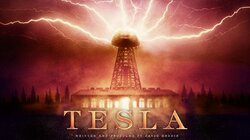
Meet Nikola Tesla, the genius engineer and tireless inventor whose technology revolutionized the electrical age of the 20th century. Regarded by many historians as an eccentric genius, Tesla gained international fame for his invention of a system of alternating current that made possible the distribution of electricity over vast distances and is the basis for the electrical grid that powers 21st-century life. But the visionary Tesla imagined much more — robots, radio, radar, remote control, the wireless transmission of messages and pictures, and harnessing the wind and sun to provide free energy to all. A showman, he dazzled his scientific peers who flocked to see him demonstrate his inventions and send thousands of volts of electricity pulsing through his body. His fertile but undisciplined imagination was the source of his genius but also his downfall, as the image of Tesla as a "mad scientist" came to overshadow his reputation as a brilliant innovator. Even before his death in 1943, he was largely forgotten, his name obscured by Thomas Edison — his hero, one-time employer, and rival. But it is his exhilarating sense of the future that has inspired renewed interest in the man, as his once scoffed-at vision of a world connected by wireless technology has become a reality.
Episode: 28x08 | Airdate: Nov 1, 2016 (120 min)

On Thanksgiving Day 1950, American-led United Nations troops were on the march in North Korea. U.S. Marine and Air Force pilots distributed holiday meals, even to those on the front lines. Hopes were high that everyone would be home by Christmas. But soon after that peaceful celebration, American military leaders, including General Douglas MacArthur, were caught off guard by the entrance of the People's Republic of China, led by Mao Zedong, into the five-month-old Korean War. Twelve thousand men of the First Marine Division, along with a few thousand Army soldiers, suddenly found themselves surrounded, outnumbered and at risk of annihilation at the Chosin Reservoir, high in the mountains of North Korea. The two-week battle that followed, fought in brutally cold temperatures, is one of the most celebrated in Marine Corps annals and helped set the course of American foreign policy in the Cold War and beyond. Incorporating interviews with more than 20 veterans of the campaign, "The Battle of Chosin" recounts this epic conflict through the heroic stories of the men who fought it.
Season 29
Episode: 29x01 | Airdate: Jan 10, 2017 (120 min)
From Robert Kenner, the director of the groundbreaking film Food, Inc., comes "Command and Control," the long-hidden story of a deadly accident at a Titan II missile complex in Damascus, Arkansas, in 1980. Based on the critically-acclaimed book by Eric Schlosser, this chilling documentary exposes the terrifying truth about the management of America's nuclear arsenal and shows what can happen when the weapons built to protect us threaten to destroy us. Filmed in a decommissioned Titan II missile silo in Arizona, the documentary features the minute-by-minute accounts of Air Force personnel, weapon designers, and first responders who were on the scene that night. "Command and Control" reveals the unlikely chain of events that caused the accident and the feverish efforts to prevent the explosion of a ballistic missile carrying the most powerful nuclear warhead ever built by the United States – a warhead 600 times more powerful than the bomb that destroyed Hiroshima.
Woven through the Damascus story is a riveting history of America's nuclear weapons program, from World War II through the Cold War, much of it based on recently declassified documents. A cautionary tale of freak accidents, near misses, human fallibility, and extraordinary heroism, "Command and Control" forces viewers to confront the great dilemma that the U.S. has faced since the dawn of the nuclear age: how do you manage weapons of mass destruction without being destroyed by them?
Episode: 29x02 | Airdate: Jan 24, 2017 (120 min)
When Rachel Carson's Silent Spring was published in 1962, the book became a phenomenon. A passionate and eloquent warning about the long-term dangers of pesticides, the book unleashed an extraordinary national debate and was greeted by vigorous attacks from the chemical industry. But it would also inspire President John F. Kennedy to launch the first-ever investigation into the public health effects of pesticides — an investigation that would eventually result in new laws governing the regulation of these deadly agents.
Featuring the voice of Mary-Louise Parker as the influential writer and scientist, Rachel Carson is an intimate portrait of the woman whose groundbreaking books revolutionized our relationship to the natural world. Drawn from Carson's own writings, letters and recent scholarship, this film illuminates both the public and private life of the woman who launched the modern environmental movement and revolutionized how we understand our relationship with the natural world.
Episode: 29x03 | Airdate: Jan 31, 2017
In the late 19th century, as America's teeming cities grew increasingly congested, the time had come to replace the nostalgic horse-drawn trolleys with a faster, cleaner, safer, and more efficient form of transportation. Ultimately, it was Boston — a city of so many firsts — that overcame a litany of engineering challenges, the greed-driven interests of businessmen, and the great fears of its citizenry to construct America's first subway. Based in part on Doug Most's acclaimed book of the same name, The Race Underground tells the dramatic story of an invention that changed the lives of millions.
Episode: 29x04 | Airdate: Feb 7, 2017 (120 min)
On April 19, 1995, Timothy McVeigh, a former soldier deeply influenced by the literature and ideas of the radical right, parked a Ryder truck with a five-ton fertilizer bomb in front of the Alfred P. Murrah Federal Building in Oklahoma City. Moments later, 168 people were killed, and 675 were injured in the blast. Oklahoma City traces the events — including the deadly encounters between American citizens and law enforcement at Ruby Ridge and Waco — that led McVeigh to commit the worst act of domestic terrorism in American history. With a virulent strain of anti-government anger still with us, the film is both a cautionary tale and an extremely timely warning.
Episode: 29x05 | Airdate: Feb 14, 2017
Shortly before dawn on August 21, 1992, six heavily armed U.S. marshals made their way up to the isolated mountaintop home of Randy and Vicki Weaver and their children on Ruby Ridge in Northern Idaho. Charged with selling two illegal sawed-off shotguns to an undercover agent, Weaver had failed to appear in court and law enforcement was tasked with bringing him in. For months, the Weavers had been holed up on their property with a cache of firearms, including automatic weapons. When the federal agents surveilling the property crossed paths with members of the family, a firefight broke out. The standoff that mesmerized the nation would leave Weaver injured, his wife and son dead, and some convinced that the federal government was out of control. Drawing upon eyewitness accounts, including interviews with Weaver's daughter, Sara, and federal agents involved in the confrontation, Ruby Ridge is a riveting account of the event that helped give rise to the modern American militia movement.
Episode: 29x06 | Airdate: Apr 10, 2017 (120 min)

Drawing on the latest scholarship, including unpublished diaries, memoirs and letters, "The Great War" tells the rich and complex story of World War I through the voices of nurses, journalists, aviators and the American troops who came to be known as "doughboys." The series explores the experiences of African-American and Latino soldiers, suffragists, Native American "code talkers" and others whose participation in the war to "make the world safe for democracy" has been largely forgotten. The Great War explores how a brilliant PR man bolstered support for the war in a country hesitant to put lives on the line for a foreign conflict; how President Woodrow Wilson steered the nation through years of neutrality, only to reluctantly lead America into the bloodiest conflict the world had ever seen, thereby transforming the United States into a dominant player on the international stage; and how the ardent patriotism and determination to support America's crusade for liberty abroad led to one of the most oppressive crackdowns on civil liberties at home in U.S. history. It is a story of heroism and sacrifice that would ultimately claim 15 million lives and profoundly change the world forever. Part 1 of 3
Episode: 29x07 | Airdate: Apr 11, 2017 (120 min)

Drawing on the latest scholarship, including unpublished diaries, memoirs and letters, "The Great War" tells the rich and complex story of World War I through the voices of nurses, journalists, aviators and the American troops who came to be known as "doughboys." The series explores the experiences of African-American and Latino soldiers, suffragists, Native American "code talkers" and others whose participation in the war to "make the world safe for democracy" has been largely forgotten. The Great War explores how a brilliant PR man bolstered support for the war in a country hesitant to put lives on the line for a foreign conflict; how President Woodrow Wilson steered the nation through years of neutrality, only to reluctantly lead America into the bloodiest conflict the world had ever seen, thereby transforming the United States into a dominant player on the international stage; and how the ardent patriotism and determination to support America's crusade for liberty abroad led to one of the most oppressive crackdowns on civil liberties at home in U.S. history. It is a story of heroism and sacrifice that would ultimately claim 15 million lives and profoundly change the world forever. Part 2 of 3
Episode: 29x08 | Airdate: Apr 12, 2017 (120 min)

Drawing on the latest scholarship, including unpublished diaries, memoirs and letters, "The Great War" tells the rich and complex story of World War I through the voices of nurses, journalists, aviators and the American troops who came to be known as "doughboys." The series explores the experiences of African-American and Latino soldiers, suffragists, Native American "code talkers" and others whose participation in the war to "make the world safe for democracy" has been largely forgotten. The Great War explores how a brilliant PR man bolstered support for the war in a country hesitant to put lives on the line for a foreign conflict; how President Woodrow Wilson steered the nation through years of neutrality, only to reluctantly lead America into the bloodiest conflict the world had ever seen, thereby transforming the United States into a dominant player on the international stage; and how the ardent patriotism and determination to support America's crusade for liberty abroad led to one of the most oppressive crackdowns on civil liberties at home in U.S. history. It is a story of heroism and sacrifice that would ultimately claim 15 million lives and profoundly change the world forever. Part 3 of 3
Season 30
Episode: 30x01 | Airdate: Jan 9, 2018 (120 min)
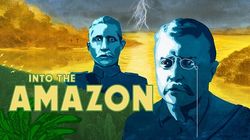
Into the Amazon tells the remarkable story of the journey taken by President Theodore Roosevelt and legendary Brazilian explorer Cândido Rondon into the heart of the South American rainforest to chart an unexplored tributary of the Amazon. Two of the most celebrated men from their respective nations, Roosevelt and Rondon set out with twenty other adventurers in 1914. Over eight eventful weeks in one of the most remote places on earth, the ill-equipped expedition navigated deadly rapids in crude dugout canoes. Hunger and exhaustion were compounded by the rainforest's unforgiving topography, which forced the men to carry heavy canoes long distances. What was anticipated to be a relatively tranquil journey turned out to be a brutal test of courage and character. Before it was all over, one member of the expedition had drowned and another had committed murder. Roosevelt would badly injure his leg and beg to be left behind to die. More than a dramatic adventure story, Into the Amazon shines a light on two of the western hemisphere's most formidable men, and the culture and politics of their two formidable nations.
Episode: 30x02 | Airdate: Jan 16, 2018 (120 min)
In the fall of 1940, British Prime Minister Winston Churchill ordered a small team of scientists on a clandestine transatlantic mission to deliver his country's most valuable military secret — a revolutionary radar component — not to the U.S. government, but to a mysterious Wall Street tycoon, Alfred Lee Loomis. Using his connections, his money, and his brilliant scientific mind, Loomis and his team of scientists developed radar technology that would arguably play a more decisive role than any other weapon in the war. The Secret of Tuxedo Park tells a long-overlooked story of an individual who helped alter the course of history in World War II.
Episode: 30x03 | Airdate: Feb 6, 2018 (120 min)
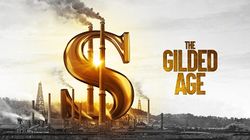
Gilded is not golden. In the closing decades of the nineteenth century, during what has become known as the Gilded Age, the population of the United States doubled in the span of a single generation. The nation became the world's leading producer of food, coal, oil, and steel, attracted vast amounts of foreign investment, and pushed into markets in Europe and the Far East. As national wealth expanded, two classes rose simultaneously, separated by a gulf of experience and circumstance that was unprecedented in American life. These disparities sparked passionate and violent debate over questions still being asked in our own times: How is wealth best distributed, and by what process? Does government exist to protect private property or provide balm to the inevitable casualties of a churning industrial system? Should the government concern itself chiefly with economic growth or economic justice? The battles over these questions were fought in Congress, the courts, the polling place, the workplace and the streets. The outcome of these disputes was both uncertain and momentous and marked by a passionate vitriol and level of violence that would shock the conscience of many Americans today. "The Gilded Age" presents a compelling and complex story of one of the most convulsive and transformative eras in American history. Meet the titans and barons of the glittering late 19th century, whose materialistic extravagance contrasted harshly with the poverty of the struggling workers who challenged them. The vast disparities between them sparked debates still raging today.
Episode: 30x04 | Airdate: Feb 13, 2018
On September 16, 1920, as hundreds of Wall Street workers headed out for lunch, a horse-drawn cart packed with dynamite exploded in front of Morgan Bank - the world's most powerful banking institution. The blast turned the nation's financial center into a bloody war zone and left 38 dead and hundreds more seriously injured. As financial institutions around the country went on high alert, many wondered if this was the strike against American capitalism that radical agitators had threatened for so long. A mostly forgotten act of terror that remains unsolved today, the bombing helped launch the career of a young J. Edgar Hoover and sparked a bitter national debate about how far the government should go to protect the nation from acts of political violence. Based on Beverly Gage's The Day Wall Street Exploded: A Story of America in its First Age of Terror.
Episode: 30x05 | Airdate: May 29, 2018 (120 min)
Examine the origin, history, and impact of the 1882 law that made it illegal for Chinese workers to come to America and for Chinese nationals already here ever to become U.S. citizens. The first in a long line of acts targeting the Chinese for exclusion, it remained in force for more than 60 years.
Episode: 30x06 | Airdate: Oct 8, 2018 (120 min)
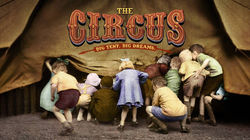
This four-hour mini-series tells the story of one of the most popular and influential forms of entertainment in American history. Through the intertwined stories of several of the most innovative and influential impresarios of the late nineteenth century, this series reveals the circus was a uniquely American entertainment created by a rapidly expanding and industrializing nation; that it embraced and was made possible by Western imperialism; that its history was shaped by a tension between its unconventional entertainments and prevailing standards of respectability; and that its promise for ordinary people was the possibility for personal reinvention. For many Americans, the circus embodied the improbable and the impossible, the exotic and the spectacular. Drawing upon a vast and richly visual archive and featuring a host of performers, historians and aficionados, The Circus follows the rise and fall of the gigantic, traveling tented railroad circus and brings to life an era when Circus Day would shut down a town and its stars were among the most famous people in the country. It explores the colorful history of this popular, influential and distinctly American form of entertainment, from the first one-ring show at the end of the 18th century to 1956, when the Ringling Bros. and Barnum & Bailey big top was pulled down for the last time.
Episode: 30x07 | Airdate: Oct 9, 2018 (120 min)
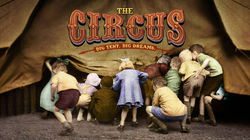
This four-hour mini-series tells the story of one of the most popular and influential forms of entertainment in American history. Through the intertwined stories of several of the most innovative and influential impresarios of the late nineteenth century, this series reveals the circus was a uniquely American entertainment created by a rapidly expanding and industrializing nation; that it embraced and was made possible by Western imperialism; that its history was shaped by a tension between its unconventional entertainments and prevailing standards of respectability; and that its promise for ordinary people was the possibility for personal reinvention. For many Americans, the circus embodied the improbable and the impossible, the exotic and the spectacular. Drawing upon a vast and richly visual archive and featuring a host of performers, historians and aficionados, The Circus follows the rise and fall of the gigantic, traveling tented railroad circus and brings to life an era when Circus Day would shut down a town and its stars were among the most famous people in the country. It explores the colorful history of this popular, influential and distinctly American form of entertainment, from the first one-ring show at the end of the 18th century to 1956, when the Ringling Bros. and Barnum & Bailey big top was pulled down for the last time.
Episode: 30x08 | Airdate: Oct 16, 2018 (120 min)

A hybrid derived from the Greek words meaning "well" and "born," the term eugenics was coined in 1883 by Sir Francis Galton, a British cousin to Charles Darwin, to name a new "science" through which human beings might take charge of their own evolution. The Eugenics Crusade tells the story of the unlikely –– and largely unknown –– campaign to breed a "better" American race, tracing the rise of the movement that turned the fledgling scientific theory of heredity into a powerful instrument of social control. Perhaps more surprising still, American eugenics was neither the work of fanatics nor the product of fringe science. The goal of the movement was simple and, to its disciples, laudable: to eradicate social ills by limiting the number of those considered to be genetically "unfit" –– a group that would expand to include many immigrant groups, the poor, Jews, the mentally and physically disabled, and the "morally delinquent." At its peak in the 1920s, the movement was in every way mainstream, packaged as a progressive quest for "healthy babies." Its doctrines were not only popular and practiced, but codified by laws that severely restricted immigration and ultimately led to the institutionalization and sterilization of tens of thousands of American citizens. Populated by figures both celebrated and obscure, The Eugenics Crusade is an often revelatory portrait of an America at once strange and eerily familiar.
Season 31
Episode: 31x01 | Airdate: Jan 15, 2019 (120 min)
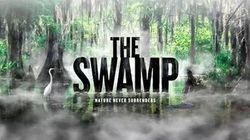
The Swamp tells the dramatic story of humanity's attempts to conquer the Florida Everglades, one of nature's most mysterious and unique ecosystems. Home to a profusion of plants and animals found nowhere else on the continent, the Everglades was an immense watershed covering the southern half of the Florida peninsula. In the 19th century, however, most Americans believed swamps were filled with diseases and noxious reptiles and saw them as obstacles to the nation's progress. The idea of draining the Everglades became the goal of many entrepreneurs, politicians and salesmen who saw great potential in turning the massive wetland into a profitable enterprise. Altering the landscape of the Everglades unleashed a torrent of unintended consequences, from catastrophic floods to brutal droughts. Told through the lives of a handful of colorful and resolute characters, from hucksters to politicians to unlikely activists, The Swamp explores the repeated efforts to transform what was seen as a vast and useless wasteland into an agricultural and urban paradise, ultimately leading to a passionate campaign to preserve America's greatest wetland.
Episode: 31x02 | Airdate: Feb 12, 2019

On a February day in 1969, off the shore of northern California, a US Navy crane carefully lowered 300 tons of metal into the Pacific Ocean. The massive tubular structure was an audacious feat of engineering — a pressurized underwater habitat, complete with science labs and living quarters for an elite group of divers who hoped to spend days or even months at a stretch living and working on the ocean floor. The Sealab project, as it was known, was the brainchild of Captain George Bond, a country doctor turned naval pioneer who dreamed of pushing the limits of ocean exploration the same way NASA was pushing the limits of space exploration. As Americans were becoming entranced with the effort to land a man on the moon, these Navy "Aquanauts," including one of NASA's most famous astronauts, Scott Carpenter, were breaking depth barrier records underwater. "Sealab" tells the little-known story of the daring program that tested the limits of human endurance and revolutionized the way humans explore the ocean.
Episode: 31x03 | Airdate: Jul 8, 2019 (120 min)
Part one begins in 1957 and tracks the early years of the space race as the United States struggles to catch up with the Soviet Union. The episode reveals breathtaking failures and successes of the nascent American space program and demonstrates the stakes and costs of reaching the moon.
"Chasing the Moon," a film by Robert Stone, reimagines the race to the moon for a new generation, upending much of the conventional mythology surrounding the effort. The series recasts the Space Age as a fascinating stew of scientific innovation, political calculation, media spectacle, visionary impulses, and personal drama. Utilizing a visual feast of previously overlooked and lost archival material — much of which has never before been seen by the public — the film features a diverse cast of characters who played critical roles in these historic events. Among those included are astronauts Buzz Aldrin, Frank Borman and Bill Anders; Sergei Khrushchev, son of the former Soviet premier and a leading Soviet rocket engineer; Poppy Northcutt, a 25-year old "mathematics whiz" who gained worldwide attention as the first woman to serve in the all-male bastion of NASA's Mission Control; and Ed Dwight, the Air Force pilot selected by the Kennedy administration to train as America's first black astronaut.
Episode: 31x04 | Airdate: Jul 9, 2019 (120 min)
Part two covers 1964–1968, four heady, dangerous years in the history of the space race, focusing on the events surrounding the Apollo 1 and Apollo 8 missions. As Americans moved through the 60s and reflect on the challenges ahead, many begin to wonder: What exactly is it going to take to beat the Soviets to the moon?
"Chasing the Moon," a film by Robert Stone, reimagines the race to the moon for a new generation, upending much of the conventional mythology surrounding the effort. The series recasts the Space Age as a fascinating stew of scientific innovation, political calculation, media spectacle, visionary impulses, and personal drama. Utilizing a visual feast of previously overlooked and lost archival material — much of which has never before been seen by the public — the film features a diverse cast of characters who played critical roles in these historic events. Among those included are astronauts Buzz Aldrin, Frank Borman and Bill Anders; Sergei Khrushchev, son of the former Soviet premier and a leading Soviet rocket engineer; Poppy Northcutt, a 25-year old "mathematics whiz" who gained worldwide attention as the first woman to serve in the all-male bastion of NASA's Mission Control; and Ed Dwight, the Air Force pilot selected by the Kennedy administration to train as America's first black astronaut.
Episode: 31x05 | Airdate: Jul 10, 2019 (120 min)
Part three, which covers 1969–1970, takes Americans to the moon and back. Dreams of space dramatically intersect with dreams of democracy on American soil, raising questions of national priorities and national identity. The final episode also considers what happens to scientific and engineering programs—and to a country—after ambitious national goals have been achieved.
"Chasing the Moon," a film by Robert Stone, reimagines the race to the moon for a new generation, upending much of the conventional mythology surrounding the effort. The series recasts the Space Age as a fascinating stew of scientific innovation, political calculation, media spectacle, visionary impulses, and personal drama. Utilizing a visual feast of previously overlooked and lost archival material — much of which has never before been seen by the public — the film features a diverse cast of characters who played critical roles in these historic events. Among those included are astronauts Buzz Aldrin, Frank Borman and Bill Anders; Sergei Khrushchev, son of the former Soviet premier and a leading Soviet rocket engineer; Poppy Northcutt, a 25-year old "mathematics whiz" who gained worldwide attention as the first woman to serve in the all-male bastion of NASA's Mission Control; and Ed Dwight, the Air Force pilot selected by the Kennedy administration to train as America's first black astronaut.
Episode: 31x06 | Airdate: Aug 6, 2019 (140 min)
In August 1969, nearly half a million people gathered at a farm in upstate New York to hear music. What happened over the next three days, however, was far more than a concert. It would become a legendary event, one that would define a generation and mark the end of one of the most turbulent decades in modern history. Occurring just weeks after an American set foot on the moon, the Woodstock music festival took place against a backdrop of a nation in conflict over sexual politics, civil rights, and the Vietnam War. A sense of an America in transition—a handoff of the country between generations with far different values and ideals—was tangibly present at what promoters billed as "An Aquarian Exposition: 3 Days of Peace and Music."
Woodstock turns the lens back at the audience, at the swarming, impromptu city that grew up overnight on a few acres of farmland. What took place in that teeming mass of humanity — the rain-soaked, starving, tripping, half-a-million strong throng of young people — was nothing less than a miracle of teamwork, a manifestation of the "peace and love" the festival had touted and a validation of the counterculture's promise to the world. Who were these kids? What experiences and stories did they carry with them to Bethel, New York that weekend, and how were they changed by three days in the muck and mire of Yasgur's farm?
Season 32
Episode: 32x01 | Airdate: Sep 10, 2019 (120 min)
The feud between the Hatfields and McCoys is perhaps the most famous family conflict in American history. As legend has it, two neighboring families in the backwoods of Appalachia waged a crude and bloody war against each other over a stolen hog, an illicit romance, and longstanding grudges. Yet the events that took place near the end of the 19th century between the Hatfields and McCoys are part of a much richer and more complex narrative of the American experience.
Anderson Hatfield and Randolph McCoy, the patriarchs of the legendary feud, were entrepreneurs seeking to climb up from hardship after fierce economic competition and rapid technological change had turned their lives upside down. When members of both families took their grievances to court, their dispute escalated into a war between two families and a struggle between two states. "The Feud" reveals more than an isolated story of mountain lust and violence between "hillbillies" — the Hatfield - McCoy feud was a microcosm of the tensions inherent in the nation's rapid industrialization after the Civil War.
Episode: 32x02 | Airdate: Jan 6, 2020 (120 min)
McCarthy chronicles the rise and fall of Joseph McCarthy, the Wisconsin Republican senator who came to power after a stunning victory in an election no one thought he could win. Once in office, he declared that there was a vast Communist conspiracy threatening America — emanating not from a rival superpower, but from within. Free of restraint or oversight, he conducted a crusade against those he accused of being enemies of the state, a chilling campaign marked by groundless accusations, bullying intimidation, grandiose showmanship, and cruel victimization. With lawyer Roy Cohn at his side, he belittled critics, spinning a web of lies and distortions while spreading fear and confusion. After years in the headlines, he was brought down by his own excesses and overreach. But his name lives on linked to the modern-day witch hunt we call "McCarthyism."
Episode: 32x03 | Airdate: Jan 28, 2020 (120 min)
By the close of the Industrial Revolution, the American food supply was tainted with frauds, fakes, and legions of new and untested chemicals, dangerously threatening the health of consumers. Based on the book by Deborah Blum, The Poison Squad tells the story of government chemist Dr. Harvey Wiley who, determined to banish these dangerous substances from dinner tables, took on the powerful food manufacturers and their allies. Wiley embarked upon a series of bold and controversial trials on 12 human subjects who would become known as the "Poison Squad." Following Wiley's unusual experiments and tireless advocacy, the film charts the path of the forgotten man who laid the groundwork for U.S. consumer protection laws, and ultimately the creation of the FDA.
Episode: 32x04 | Airdate: Apr 21, 2020 (120 min)
In 1966, drought and an exploding population confronted India with the imminent threat of a severe famine that many scientists and intellectuals feared was a harbinger of global catastrophes to come, as the world's population outstripped its ability to produce food. India turned to Norman Borlaug, an unassuming plant breeder from Iowa whose combination of scientific knowledge and raw determination had made him a legend among a small handful of fellow specialists.
The Man Who Tried to Feed the World recounts the story of the man who would not only solve India's famine problem but would go on to lead a "Green Revolution" of worldwide agriculture programs, saving countless lives. He was awarded the 1970 Nobel Peace Prize for his work but spent the rest of his life watching his methods and achievements come under increasing fire.
Episode: 32x05 | Airdate: May 4, 2020 (120 min)
Part One chronicles Bush's unorthodox road to the White House. The once wild son of a political dynasty, few expected Bush to ascend to the presidency. Yet 36 days after the November 2000 election, Bush emerged the victor of the most hotly contested race in the nation's history. Little in the new president's past could have prepared him for the events that unfolded on September 11, 2001. Thrust into the role of war president, Bush's response to the deadly terrorist attack would come to define a new era in American foreign policy.
Episode: 32x06 | Airdate: May 5, 2020 (120 min)
Part Two opens with the ensuing war in Iraq and continues through Bush's second term, as the president confronts the devastating impact of Hurricane Katrina and the most serious financial crisis since the Great Depression.
Episode: 32x07 | Airdate: May 19, 2020 (120 min)
The Super Outbreak of 1974 was the most intense tornado outbreak on record, tearing a vicious path of destruction across thirteen states, generating 148 tornadoes from Alabama to Ontario, damaging thousands of homes, and killing more than 300 people. Meteorologist Tetsuya Theodore "Ted" Fujita spent ten months studying the outbreak's aftermath in the most extensive aerial tornado study ever conducted and through detailed mapping and leaps of scientific imagination, made a series of meteorological breakthroughs.
His discovery of "microbursts," sudden high wind patterns that could cause airplanes to drop from the sky without warning, transformed aviation safety and saved untold numbers of lives. Mr. Tornado is the remarkable story of the man whose groundbreaking work in research and applied science saved thousands of lives and helped Americans prepare for and respond to dangerous weather phenomena.
Episode: 32x08 | Airdate: Jul 6, 2020 (120 min)
One hundred years after the passage of the 19th Amendment,The Votetells the dramatic culmination story of the hard-fought campaign waged by American women for the right to vote, a transformative cultural and political movement that resulted in the most significant expansion of voting rights in U.S. history.
In its final decade, from 1909 to 1920, movement leaders wrestled with contentious questions about the most effective methods for affecting social change. They debated the use of militant, even violent tactics, as well as hunger strikes and relentless public protests. The battle for the vote also upended previously accepted ideas about the proper role of women in American society and challenged the definitions of citizenship and democracy.
Exploring how and why millions of 20th-century Americans mobilized for — and against — women's suffrage, The Vote brings to life the unsung leaders of the movement and the deep controversies over gender roles and race that divided Americans then — and continue to dominate political discourse today.
Episode: 32x09 | Airdate: Jul 7, 2020 (120 min)
Part Two examines the mounting dispute over strategy and tactics, and reveals how the pervasive racism of the time, particularly in the South, impacted women's fight for the vote. Explore the final four years of the long and arduous road to the passage of the 19th Amendment.
Season 33
Episode: 33x01 | Airdate: Jan 11, 2021
Based on the book The Woman Who Smashed Codes: A True Story of Love, Spies, and the Unlikely Heroine Who Outwitted America's Enemies, The Codebreaker reveals the fascinating story of Elizebeth Smith Friedman, the groundbreaking cryptanalyst whose painstaking work to decode thousands of messages for the U.S. government would send infamous gangsters to prison in the 1930s and bring down a massive, near-invisible Nazi spy ring in WWII. Her remarkable contributions would come to light decades after her death, when secret government files were unsealed. But together with her husband, the legendary cryptologist William Friedman, Elizebeth helped develop the methods that led to the creation of the powerful new science of cryptology and laid the foundation for modern codebreaking today.
Episode: 33x02 | Airdate: Feb 15, 2021 (120 min)
On Easter Sunday, 1939, contralto Marian Anderson stepped up to a microphone in front of the Lincoln Memorial. Inscribed on the walls of the monument behind her were the words "all men are created equal." Barred from performing in Constitution Hall because of her race, Anderson would sing for the American people in the open air. Hailed as a voice that "comes around once in a hundred years" by maestros in Europe and widely celebrated by both white and black audiences at home, her fame hadn't been enough to spare her from the indignities and outright violence of racism and segregation. Voice of Freedom interweaves Anderson's rich life story with this landmark moment in history, exploring fundamental questions about talent, race, fame, democracy, and the American soul.
Episode: 33x03 | Airdate: Mar 30, 2021 (120 min)
In 1946, Isaac Woodard, a Black army sergeant on his way home to South Carolina after serving in WWII, was pulled from a bus for arguing with the driver. The local chief of police savagely beat him, leaving him unconscious and permanently blind. The shocking incident made national headlines and, when the police chief was acquitted by an all-white jury, the blatant injustice would change the course of American history. Based on Richard Gergel's book Unexampled Courage, the film details how the crime led to the racial awakening of President Harry Truman, who desegregated federal offices and the military two years later. The event also ultimately set the stage for the Supreme Court's landmark 1954 Brown v. Board of Education decision, which finally outlawed segregation in public schools and jumpstarted the modern civil rights movement.
Episode: 33x04 | Airdate: Apr 19, 2021 (120 min)
Explore the life and times of author L. Frank Baum, the creator of one of the most beloved, enduring, and classic American narratives. By 1900, when The Wonderful Wizard of Oz was published, Baum was 44 years old and had spent much of his life in restless pursuit of success. With mixed results, he dove into a string of jobs — chicken breeder, actor, marketer of petroleum products, shopkeeper, newspaperman, and traveling salesman — Baum continued to reinvent himself, reflecting a uniquely American brand of confidence, imagination, and innovation. During his travels to the Great Plains and on to Chicago during the American frontier's final days, he witnessed a nation coming to terms with the economic uncertainty of the Gilded Age. But Baum never lost his childlike sense of wonder. Eventually, he crafted his observations into a magical tale of survival, adventure, and self-discovery, reinterpreted through the generations in films, books, and musicals.
Episode: 33x05 | Airdate: May 17, 2021 (120 min)
Billy Graham explores the life and career of one of the best-known and most influential Christian leaders of the 20th century. From modest beginnings on a North Carolina farm, Graham rose to prominence with a fiery preaching style, movie-star good looks, and effortless charm. His early fundamentalist sermons harnessed the apocalyptic anxieties of a post-atomic world, exhorting audiences to adopt the only possible solution: devoting one's life to Christ. Graham became an international celebrity by age 30 who built a media empire, preached to millions worldwide, and had the ear of tycoons, royalty, and presidents. At age 99, he died a national icon, estimated to have preached in person to 210 million people. Billy Graham examines the evangelist's extraordinary influence on American politics and culture, interweaving the voices of historians, scholars, witnesses, family, and Graham himself to create a kaleidoscopic portrait of a singular figure in the American experience.
Season 34
Episode: 34x01 | Airdate: Sep 13, 2021 (120 min)
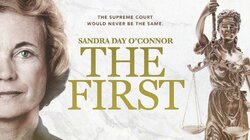
When Ronald Reagan nominated Sandra Day O'Connor as the Supreme Court's first female justice in 1981, the announcement dominated the news. Time Magazine's cover proclaimed "Justice At Last," and she received unanimous Senate approval. Born in 1930 in El Paso, Texas, O'Connor grew up on a cattle ranch in Arizona in an era when women were expected to become homemakers. After graduating near the top of her class at Stanford Law School, she could not convince a single law firm to interview her, so she turned to volunteer work and public service. A Republican, she served two terms in the Arizona state senate, then became a judge on the state court of appeals. During her 25 years on the Supreme Court, O'Connor was the critical swing vote on cases involving some of the 20th century's most controversial issues, including race, gender, and reproductive rights — and she was the tiebreaker on Bush v. Gore. Forty years after her confirmation, this biography recounts the life of a pioneering woman who both reflected and shaped an era.
Episode: 34x02 | Airdate: Sep 27, 2021 (120 min)
In the 1930s, William Randolph Hearst's media empire included 28 newspapers, a movie studio, a syndicated wire service, radio stations, and 13 magazines. Nearly one in four American families read a Hearst publication. His newspapers were so influential that Adolf Hitler, Benito Mussolini, and Winston Churchill all wrote for him. The first practitioner of what is now known as "synergy," Hearst used his media stronghold to achieve unprecedented political power, then ran for office himself. After serving two terms in Congress, he came in second in the balloting for the Democratic presidential nomination in 1904. Perhaps best known as the inspiration for Orson Welles' Citizen Kane and his lavish castle in San Simeon, Hearst died in 1951 at the age of 88, transforming the media's role in American life and politics. The two-part, four-hour film is based on historian David Nasaw's critically acclaimed biography, The Chief: The Life of William Randolph Hearst.
Episode: 34x03 | Airdate: Sep 28, 2021 (120 min)
In the 1930s, William Randolph Hearst's media empire included 28 newspapers, a movie studio, a syndicated wire service, radio stations, and 13 magazines. Nearly one in four American families read a Hearst publication. His newspapers were so influential that Adolf Hitler, Benito Mussolini, and Winston Churchill all wrote for him. The first practitioner of what is now known as "synergy," Hearst used his media stronghold to achieve unprecedented political power, then ran for office himself. After serving two terms in Congress, he came in second in the balloting for the Democratic presidential nomination in 1904. Perhaps best known as the inspiration for Orson Welles' Citizen Kane and his lavish castle in San Simeon, Hearst died in 1951 at the age of 88, transforming the media's role in American life and politics. The two-part, four-hour film is based on historian David Nasaw's critically acclaimed biography, The Chief: The Life of William Randolph Hearst.
Episode: 34x04 | Airdate: Feb 7, 2022
Riveted: The History of Jeans reveals the fascinating and surprising story of this iconic American garment. At any given moment, half the people on the planet are wearing them. They have become a staple of clothing the world over, worn by everyone from presidents and supermodels to farmers and artists. More than just an item of apparel, America's tangled past is woven into the indigo blue fabric. From its roots in slavery to its connection to the Wild West, youth culture, the civil rights movement, rock and roll, hippies, high fashion, and hip-hop, jeans are the canvas on which the history of American ideology and politics is writ large.
Episode: 34x05 | Airdate: Feb 15, 2022
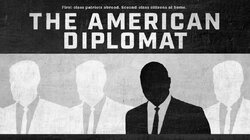
The American Diplomat explores the lives and legacies of three African American ambassadors — Edward Dudley, Terence Todman, and Carl Rowan — who pushed past historical and institutional racial barriers to reach high-ranking appointments in the Truman, Eisenhower, and Kennedy administrations. At the height of the civil rights movement in the United States, the three men were asked to represent the best of American ideals abroad while facing discrimination at home. Oft reputed as "pale, male and Yale," the U.S. State Department fiercely maintained and cultivated the Foreign Service's elitist character and was one of the last federal agencies to desegregate. Through rare archival footage, in-depth oral histories, and interviews with family members, colleagues, and diplomats, the film paints a portrait of three men who left a lasting impact on the content and character of the Foreign Service and changed American diplomacy forever. Building lives of opportunity and influence, they advocated for a nation that did not always advocate for them.
Episode: 34x06 | Airdate: May 3, 2022

Just before midnight on March 12, 1928, about 40 miles north of Los Angeles, one of the biggest dams in the country blew apart, releasing a wall of water 20 stories high and causing the second deadliest disaster in California history. Ten thousand people lived downstream. Flood in the Desert tells the dramatic story of the St. Francis Dam disaster, which killed over 400 people and destroyed millions of dollars worth of property. The dam's collapse washed away the reputation of William Mulholland, the father of modern Los Angeles, and jeopardized more extensive plans to transform the West. A self-taught engineer, the 72-year-old Mulholland launched the city's remarkable growth by building both a cement aqueduct to pipe water 233 miles from the Owens Valley and Sierra Nevada Mountains across the Mojave Desert and the St. Francis Dam to hold a full year's supply of water for Los Angeles. Now, Mulholland was promoting a massive new project: the Hoover Dam. The collapse of the St. Francis Dam, the city's largest single reservoir, was a colossal engineering and human disaster that might have slowed the national project to tame the West. But within days, a concerted effort was underway to erase the dam's failure from popular memory.
Episode: 34x07 | Airdate: May 24, 2022 (120 min)
Over 100 years before the deadly COVID-19 pandemic set off a nationwide wave of fear and anti-Asian sentiment, an outbreak of bubonic plague in San Francisco's Chinatown unleashed a similar crisis. The death of a Chinese immigrant in 1900 would have likely gone unnoticed if a sharp-eyed medical officer hadn't discovered a swollen black lymph node on his body — evidence of one of the world's most feared diseases, bubonic plague. It was the first time in history that civilization's most feared disease, the infamous Black Death, made it to North America. When others started dying, health officials and business leaders were torn about how to stave off an epidemic without causing panic and derailing the city's booming economy.
Two doctors — vastly different in temperament, training, and experience — used different methods to lead the seemingly impossible battle to contain the disease before it could engulf the country. In addition to overwhelming medical challenges, they faced unexpected opposition from business leaders, politicians, and even the President of the United States. Fueling the resistance would be a potent blend of political expediency, ignorance, greed, racism, and deep-rooted distrust of not only federal authority but science itself. Scapegoated as the source of the disease early on, the Chinese-American community fought back against unjust, discriminatory treatment. Based on David K. Randall's Black Death at the Golden Gate, the film features interviews with various medical experts, authors, and Asian-American historians.
Season 35
Episode: 35x01 | Airdate: Nov 14, 2022 (120 min)
Unfolding like a political thriller, Taken Hostage tells the story of the Iran hostage crisis, when 52 American diplomats, Marines, and civilians were held hostage at the American Embassy in Tehran on November 4, 1979. For the next 444 days, the world watched as the United States received a daily barrage of humiliation, vitriol, and hatred from a country that had long been one of our closest allies. Told through the candid, personal testimony of those whose lives were upended by the action, the crisis would transform both the U.S. and Iran and forever upend the focus and direction of American foreign policy.
The film is told mainly through the lens of the remarkable love story of former hostage Barry Rosen and his wife Barbara, who was suddenly thrust into the public eye as the crisis dragged on. Other key figures are Hilary Brown and Carole Jerome, two pioneering female foreign correspondents who risked their lives to uncover the truth of what was happening in Iran; Gary Sick, a senior member of President Carter's national security team and longtime Iran expert; and Colonel James Q. Roberts, a member of the top-secret American commando unit, who recounts details of the failed attempt to rescue the hostages in a daring Special Forces operation. Taken Hostage uses their candid, personal testimonies to tell the story of these dramatic, history-making events.
Episode: 35x02 | Airdate: Nov 15, 2022 (120 min)
Unfolding like a political thriller, Taken Hostage tells the story of the Iran hostage crisis, when 52 American diplomats, Marines, and civilians were held hostage at the American Embassy in Tehran on November 4, 1979. For the next 444 days, the world watched as the United States received a daily barrage of humiliation, vitriol, and hatred from a country that had long been one of our closest allies. Told through the candid, personal testimony of those whose lives were upended by the action, the crisis would transform both the U.S. and Iran and forever upend the focus and direction of American foreign policy.
The film is told mainly through the lens of the remarkable love story of former hostage Barry Rosen and his wife Barbara, who was suddenly thrust into the public eye as the crisis dragged on. Other key figures are Hilary Brown and Carole Jerome, two pioneering female foreign correspondents who risked their lives to uncover the truth of what was happening in Iran; Gary Sick, a senior member of President Carter's national security team and longtime Iran expert; and Colonel James Q. Roberts, a member of the top-secret American commando unit, who recounts details of the failed attempt to rescue the hostages in a daring Special Forces operation. Taken Hostage uses their candid, personal testimonies to tell the story of these dramatic, history-making events.
Episode: 35x03 | Airdate: Jan 3, 2023 (120 min)
In the first decades of the 20th century, when scientific innovations were transforming life, researchers made a thrilling new claim: they could tell whether someone was lying by using a machine.
Popularly known as the "lie detector," the device transformed police work, seized headlines, and was extolled in movies, TV, and comics as an infallible crime-fighting tool. Husbands and wives tested each other's fidelity. Corporations routinely tested employees' honesty, and government workers were tested for loyalty and "morals."
But the promise of the polygraph turned dark, and the lie detector too often became an apparatus of fear and intimidation. Written and directed by Rob Rapley and executive produced by Cameo George, The Lie Detectoris a tale of good intentions, twisted morals, and unintended consequences.
Episode: 35x04 | Airdate: Jan 17, 2023 (120 min)
Raised in the small all-Black Florida town of Eatonville, Zora Neale Hurston studied at Howard University before arriving in New York in 1925. She would soon become a key figure of the Harlem Renaissance, best remembered for her novel, Their Eyes Were Watching God. But even as she gained renown in the Harlem literary circles, Hurston was also discovering anthropology at Barnard College with the renowned Franz Boas. She would make several trips to the American South and the Caribbean, documenting the lives of rural Black people and collecting their stories. She studied her own people, an unusual practice at the time, and during her lifetime, became known as the foremost authority on Black folklore. This episode is an in-depth biography of the influential author whose groundbreaking anthropological work would challenge assumptions about race, gender, and cultural superiority that had long defined the field in the 19th century.
Episode: 35x05 | Airdate: Feb 20, 2023 (120 min)
For generations, Monopoly has been America's favorite board game, a love letter to unbridled capitalism and — for better or worse — the impulses that make our free-market society tick. But behind the myth of the game's creation is an untold tale of theft, obsession, and corporate double-dealing. Contrary to the folksy legend spread by Parker Brothers, Monopoly's secret history is a surprising saga that features a radical feminist, a community of Quakers in Atlantic City, America's greatest game company, and an unemployed Depression-era engineer. And the real story behind the creation of the game might never have come to light if it weren't for the determination of an economics professor and impassioned anti-monopolist.
Part detective story, part sharp social commentary, and part pop-culture celebration, Ruthless: Monopoly's Secret History presents the fascinating true story behind America's favorite game.
Episode: 35x06 | Airdate: Mar 28, 2023 (90 min)
The Movement and the "Madman" shows how two antiwar protests in the fall of 1969 — the largest the country had ever seen — pressured President Nixon to cancel what he called his "madman" plans for a massive escalation of the U.S. war in Vietnam, including a threat to use nuclear weapons. At the time, protestors had no idea how influential they could be and how many lives they may have saved.
Told through remarkable archival footage and firsthand accounts from movement leaders, Nixon administration officials, historians, and others, the film explores how the leaders of the antiwar movement mobilized disparate groups from coast to coast to create two massive protests that changed history.
Episode: 35x07 | Airdate: Apr 4, 2023
For nearly 50 years, biophysicist and inventor Mária Telkes applied her prodigious intellect to harnessing the sun's power. She designed and built the first successfully solar-powered house in 1949 but was perplexed by the knotty scientific challenge of developing a reliable and economical way to store captured solar energy. Telkes held more than 20 patents at the time of her death in 1995.
Episode: 35x08 | Airdate: Jun 27, 2023 (120 min)
In the 1950s and '60s, an underground network of transgender women and cross-dressing men found refuge at a modest house in the Catskills region of New York. Known as Casa Susanna, the house provided a safe place to express their true selves and live for a few days as they had always dreamed—dressed as and living as women without fear of being incarcerated or institutionalized for their self-expression.
Told through the memories of those whose visits to the house would change their lives, the film provides a moving look back at a secret world where the persecuted and frightened found freedom, acceptance, and, often, the courage to live their lives out of the shadows.
Episode: 35x09 | Airdate: Sep 11, 2023 (120 min)

On September 12, 1974, police were stationed outside schools across Boston as Black and White students were bused for the first time between neighborhoods to comply with a federal court desegregation order. The cross-town busing was met with shocking violence, much of it directed at children: angry white protestors threw rocks at school buses carrying Black children and hurled racial epithets at the students as they walked into their new schools. The chaos and racial unrest would escalate and continue for years. Using eyewitness accounts, oral histories, and news footage that hasn't been seen in decades, The Busing Battleground pulls back the curtain on the volatile effort to end school segregation, detailing the decades-long struggle for educational equity that preceded the crisis. It illustrates how civil rights battles had to be fought across the North as well as the South and reckons with the class tensions and dimensions of the desegregation saga, exploring how the neighborhoods most impacted by the court's order were the poorest in the city.
Episode: 35x10 | Airdate: Sep 12, 2023 (120 min)
In The Harvest, Pulitzer Prize-winning author Douglas A. Blackmon looks back at how school integration transformed his hometown of Leland, Mississippi. After the 1954 Supreme Court ruled that racial segregation in public schools was unconstitutional, little more than token efforts were made to desegregate Southern schools. That changed dramatically on October 29, 1969, when the high court ordered Mississippi schools to fully — and immediately — desegregate. As a result, a group of children, including six-year-old Blackmon, became part of the first class of Black and White children who would attend all 12 grades together in Leland.
Set against vast historic and demographic changes unfolding across America, The Harvest follows a coalition of Black and white citizens working to create racially integrated public schools in a cotton town in the middle of the Mississippi Delta, the most rigidly segregated area in America. It tells the extraordinary story of how that first class became possible, then traces the lives of Blackmon and his classmates, teachers, and parents from the first day through high school graduation in 1982. It is a riveting portrait of how those children's lives were transformed and how the town — and America — were changed. But as the film follows the lives of those children into the present, it is also a portrait of what our society has lost in its failure to finish the work begun a generation ago.
Episode: 35x11 | Airdate: Oct 30, 2023
The War on Disco explores the culture war that erupted over the spectacular rise of disco music. Originating in underground Black and gay clubs, disco had unseated rock as America's most popular music by the late 1970s. But many diehard rock fans viewed disco, with its repetitive beat and culture that emphasized pleasure, as shallow and superficial. A story that's about much more than music, The War on Disco explores how the powerful anti-disco backlash revealed a cultural divide that to some seemed to be driven by racism and homophobia. The hostility came to a head on July 12, 1979, when a riot broke out at "Disco Demolition Night" during a baseball game in Chicago.
Season 36
Episode: 36x01 | Airdate: Jan 23, 2024
In February 1939, more than 20,000 Americans filled Madison Square Garden for an event billed as a "Pro-American Rally." Images of George Washington hung next to swastikas and speakers railed against the "Jewish controlled media" and called for a return to a racially "pure" America. The keynote speaker was Fritz Kuhn, head of the German American Bund. Nazi Town, USA tells the largely unknown story of the Bund, a 1930s pro-Nazi group which had scores of chapters in suburbs and big cities across the country and represented what many believe was a real threat of fascist subversion in the United States. The Bund held joint rallies with the Ku Klux Klan and ran dozens of summer camps for children centered around Nazi ideology and imagery. Its melding of patriotic values with virulent anti-Semitism raised thorny issues that we continue to wrestle with today.
Episode: 36x02 | Airdate: Feb 20, 2024 (120 min)
Fly With Me tells the story of the pioneering young women who became flight attendants at a time when single women were unable to order a drink, eat alone in a restaurant, own a credit card or get a prescription for birth control. Becoming a "stewardess," as they were called, offered unheard-of opportunities for travel, glamour, adventure and independence. Although often maligned as feminist sellouts, these women were on the frontlines of the battle to assert gender equality and transform the workplace. Featuring firsthand accounts, personal stories and a rich archival record, the film tells the lively and important but neglected history of the women who changed the world while flying it.
Episode: 36x03 | Airdate: Mar 26, 2024
The Trailblazers who landed the first blow against cancer.
The story of how the life-saving cervical cancer test became an ordinary part of women's lives is as unusual and remarkable as the coalition of people who ultimately made it possible: a Greek immigrant, Dr. George Papanicolau; his intrepid wife, Mary; Japanese-born artist Hashime Murayama; Dr. Helen Dickens, an African American OBGYN in Philadelphia; and an entirely new class of female scientists known as cyto-screeners. But the test was just the beginning. Once the test proved effective, the campaign to make pap smears available to millions of women required nothing short of a total national mobilization. The Cancer Detectives tells the untold story of the first-ever war on cancer and the people who fought tirelessly to save women from what was once the number one cancer killer of women.
Episode: 36x04 | Airdate: Apr 22, 2024 (120 min)
Poisoned Ground: The Tragedy at Love Canal tells the dramatic and inspiring story of the ordinary women who fought against overwhelming odds for the health and safety of their families. In the late 1970s, residents of Love Canal, a working-class neighborhood in Niagara Falls, New York, discovered that their homes, schools, and playgrounds were built on top of a former chemical waste dump, which was now leaking toxic substances and wreaking havoc on their health. Through interviews with many of the extraordinary housewives turned activists, the film shows how they effectively challenged those in power, forced America to reckon with the human cost of unregulated industry, and created a grassroots movement that galvanized the landmark Superfund Bill.



